About Islam
- # Quran 382 Articles
- # Spirituality 382 Articles
- # Discovering Islam 382 Articles
- # Shariah 382 Articles
- # Videos 382 Articles
- # Family & Life 382 Articles
- # Fatwa & Counseling 382 Articles
- # Muslim News 382 Articles
- # Youth Q & A 382 Articles
- # Donate 382 Articles
- Family & Life
- Culture & Entertainment

10 Reasons Why Muslims Should Travel
Traveling is healthy for the body, mind, and spirit; Islam prescribes these exact reasons to why Muslims should travel.
If you’re looking for encouragement to plan your next adventure , here are eight wonderful benefits of traveling to help you decide.
1 – Create Meaningful Relationships
Knowing and learning about others is part of our deen. Allah says in the Qur’an,
“O mankind, indeed we have created you from male and female and made you peoples and tribes that you may know one another […]” (Al-Hujurat 49:13)
Visiting, experiencing, and relating to new people and cultures helps improve both your social and communication skills. You’re always likely to make some new friends along the journey. Traveling to new places allows you to build new relationships .
You can also use the challenges, experiences, and new knowledge about yourself to strengthen existing relationships .
" title="Advertise and Market to Muslims" target="_blank">Ads by Muslim Ad Network
2 – Shake Things Up
Travel keeps things interesting! If you are feeling confused, stagnant, or just plain bored in your life, taking a break from the ordinary can help you move forward . New experiences help you process old ones to make fresh, interesting connections in your brain.
Traveling can also act as a muse to your creativity . It helps you gather and assimilate new, original, and creative thoughts. Anytime you are feeling stuck or need a change of pace, travel is the perfect solution.
Travel also enhances and grows the amount of uncertainty you’re able to tolerate. And tolerance to change is a great skill to have when you head back to a more stable and settled life . Because no matter where you are, your days will always have unexpected challenges and hiccups: that’s life!
3 – Prove Dreams Come True
The whole experience of travel involves both planning and achieving your dreams . There is goal setting, itineraries, mapping out your experience, and waiting for the date. Travel is a new experience in space and time that usually requires both money-saving and pining for the experience.
There is a deep sense of accomplishment during and after travel. You’ve proven to yourself that you can achieve any dreams and goals when you apply yourself to them.
4 – Gain Peace of Mind
While some people use travel as a temporary (or semi-permanent) escape. It can also give you a renewed sense of peace with yourself and your “regular” living environment.
Travel — especially to drastically different cultures and faraway lands — can help you gain gratitude and appreciation for what you already have in your life. Travel inspires you to make peace with what you have and be grateful for your many privileges and blessings.
5 – Broaden Your Horizons
This travel reason is cliché but true. You don’t understand all that you don’t know until you’re exposed to it. Traveling helps you understand and see that you have a lot to learn .
There is a mystery to unlock about you, others, and the world we all live in. Traveling throughout the land gives you a chance to expand your maps of how you move in the world and gain new perspectives. Travel can also help you connect to God, His creation, nature, and the universe in ways that you can’t when locked in a box of your own making.
Islam doesn’t want us to stay blind to the ways and cultures of others. In fact, quite the opposite. Allah commands us to travel:
“Say, [O Muhammad], ‘Travel through the land and observe how He began creation. Then Allah will produce the final creation. Indeed, Allah, over all things, is competent.’” ( Al-`Ankabut 29:20)
6 – Collect Cool Stories
Travel gives you a wealth of memories to last you a lifetime. While there will be some fun (and some harrowing) experiences, no matter what happens, it will always be an adventure. Traveling helps you loosen up and have a good time experiencing new places, cultures, and people. Travel creates feel-good memories that you can share with your friends and family, or recall whenever you need to go back to a “happy place.”
7 – Challenge Yourself
If you feel you’re stuck in a rut in your daily life, travel can help you break free. Travel pushes you to the limits of what you can tolerate and master. This helps you get to know yourself better . Getting in touch with yourself, your essence, and your uniqueness are some of the greatest gifts travel gives you.
8 – Gain a Real-life Education
When you are on the ground in a new place, there is much learning to do in a short amount of time. You must work through puzzles and challenges on the fly. Traveling pushes you to develop new skills — even learn new languages — to both survive and thrive.
9 – Boost Your Confidence
Traveling, especially solo traveling, makes you trust yourself and become more self-reliant . It gives you a chance to understand and use your unique gifts to conquer new challenges. The more you practice traveling, the more your confidence builds and the easier it gets. This means that over time it will become easier to identify your fears and overcome them in new situations.
10 – Food! (For Thought)
Last but not least, let’s not forget the new foods. We tie so much of our cultures into the foods we eat. The spices, the preparation, the ceremony of serving: food is a powerful way to understand others.
When you understand the foods others eat and why they eat them, you get to know them on one of their most primal levels. We also can’t deny that most of the new foods you’ll taste on your travels are delicious!
Remember, you don’t have to go far to experience all these benefits of travel. Even a few hundred miles (or kilometers) out of your hometown can expose you to all the challenges, situations, and people who will help you grow.
Where have you always wanted to visit? What’s stopping you other than yourself? Enough with the excuses: take the leap and start planning your next trip today.
Privacy Overview

- Sultan Shahin
- Mohammad Yunus
- Naseer Ahmad
- Ghulam Ghaus
- Ghulam Rasool
- Arshad Alam
- Rashid Samnakay
- Sohail Arshad
- New Age Islam Staff Writer
- New Age Islam Correspondent
- New Age Islam Edit Desk
- Yoginder S. Sikand
- Arman Neyazi
- Nastik Durani
- Basil Hijazi
- Maryam Sakeenah
- Umm Abdullah
- Nigar Ataulla
- Aftab Ahmad
- Prof. C. M. Naim
- Prof. Masood Alam Falahi
- Dr. John Andrew Morrow (Imam Ilyas Islam)
- Charles Upton
- Pervez Hoodbhoy
- Javed Ahmad Ghamidi
- Justin Jones
- Mushtaq Ul Haq Ahmad Sikander
- Junaid Jahangir
- Dr. Adis Duderija
- Abdur Rahman Hamza
- Kaniz Fatma
- Asif Merchant
- Dr. Mike Ghous
- Mohammad R. Awal
- Dr. Mohammad Nejatullah Siddiqui
- Anita McKone
- Dr. Qaiser Shamim
- Sharifah Munirah Alatas
- Shakeel Shamsi
- Hassan Radwan
- Tufail Ahmad
- Dr. Kausar Fatima
- Prof. Parvin Sultana
- S. Mubashir Noor
- Maulana Syed Aleem Ashraf Jaisi
- Imam Shamshad A. Nasir
- Sharif Arshad
- A. Faizur Rahman
- Maulana Wahiduddin Khan
- Dr. Deeba Abedi
- Ayesha Hareem
- Canon Alan Amos
- Danish Raza
- Ikram Ahmed
- Ashfaque Syed
- Prof. Akhtarul Wasey
- Zafarul Islam Khan
- Mohsin Khan
- Roshan Shah
- Maulana Dr. Waris Mazhari
- Rabbi Allen S. Maller
- Fr. Victor Edwin SJ
- Fr. Michael D. Calabria
- Fr. Thomas V
- Fr. Midhun J Francis
- V.A. Mohamad Ashrof
- Syed Sadruddin Hussain
- Robert J. Burrowes
- John Scales Avery
- Prof. Henry Francis B. Espiritu
- T.O. Shanavas
- Kazi Wadud Nawaz
- V.M. Khaleelur Rahman
- Belinda F. Espiritu
- S. M. Pasha
- Misbahul Huda
- Ziaur Rahman
- Iftekhar Hai
- Nauman Sadiq
- Allama Adnan Ibrahim
- A. Amrita Anandi
- Khwaja Azhar Abbas
- Lubna Anwar
- Waheed Rizvi
- Dr. Mohammad Najeeb Qasmi
- Ahsan ul Haq
- Mubashir VP
- Maulana Nauman Naeem
- Dr. Vithal Rajan
- Somali K Chakrabarti
- Nasim Yousaf
- Feroze Mithiborwala
- Dr. Ibrahim B. Syed
- Dr. M.I.H. Farooqi
- Mohammad Hashim
- Sam Westrop
- Maulana Tauqir Raza Barailvi
- Mufti Asjad Raza Qadri
- Mubarak Kapdi
- Dr Mohammad Abuhamdiyyah
- Zahur Raza Misbahi
- Irshad Mahmood
- Irshad Ahmad Bhat
- Zahid Sultan Magray
- Allama Rahmatullah Tarique
- Swami Lakshmi Shankaracharya
- Gouthama Siddarthan
- Iqbal R. Sama
- Suleiman Khan
- Neza T. Reyhan
- Saquib Salim
- Grace Mubashir
- Hasan Mahmud
- Mohammad Ali
- Dr. Mohammad Ghitreef
- New Age Islam TV
Islam and Spiritualism ( 3 Jun 2020 , NewAgeIslam.Com)
Teachings of quran and hadith on rights of travellers: are muslims following them.

By S. Arshad, New Age Islam
03 June 2020
The holy Quran has guaranteed the rights of every human being. It has determined the rights of the parents, rights of the wives, rights of children, rights of the neighbours, of the orphans, the widows and the destitute. The Quran did not ignore the rights of the travellers and stressed on their rights as well.
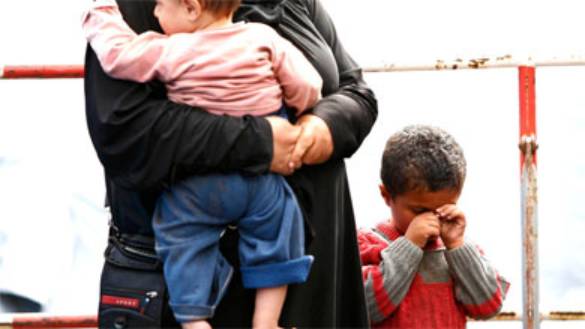
"They ask you what to spend, tell them to spend their wealth on their parents, on relatives, on orphans, on the needy and on the travellers."( Al Baqarah:215)
"Give the relatives, the needy and the travellers their due”. (Bani Israil:26)
The holy Prophet pbuh exhorted Muslims to help the travellers: There is a Hadith on the importance of helping the travellers.
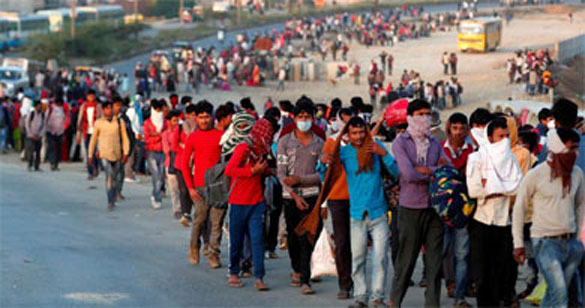
Hazrat Abu Huraira narrated: The holy Prophet pbuh said, "The supplication of three kinds of people is accepted without any doubt. The supplication of the oppressed, the supplication of the travellers and the supplication of parents in favour of the son."(Tirmidhi, Dawood)
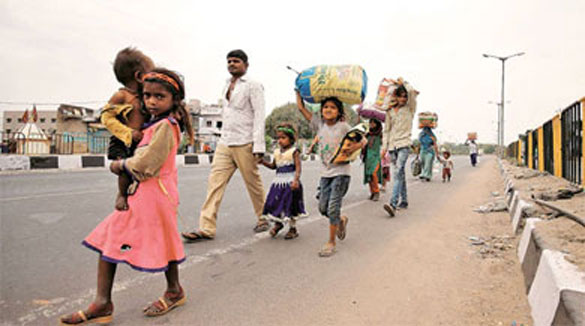
In the present situation in the country when migrant workers are travelling thousands of miles with their families on foot without food and water, the teachings of the Quran and Hadiths assume relevance and greater significance. The teachings remind Muslims of their social and religious duty to help the hapless migrant workers with water, food and shelter and help them reach their homes safely. The Quran and Hadith do not discriminate travellers on the basis of religion. Muslims should extend help to every traveller who is in need. Ignoring their plight while being in a position to help will be a great sin.
It's heartening that the Muslim community has kept in mind the teachings of the Quran and Hadith on the rights of travellers and have come forward with help for them with whatever resources were available with them. They have provided food, water and fruits to the migrant workers on the way. However, they should help them in a more organised manner and with a greater zeal. This is the best time to prove that "they are the best people brought for mankind."
S. Arshad is a regular columnist for NewAgeIslam.com
URL: https://www.newageislam.com/islam-spiritualism/teachings-quran-hadith-rights-travellers/d/122022
New Age Islam , Islam Online , Islamic Website , African Muslim News , Arab World News , South Asia News , Indian Muslim News , World Muslim News , Women in Islam , Islamic Feminism , Arab Women , Women In Arab , Islamophobia in America , Muslim Women in West , Islam Women and Feminism

Muslim Girl

10 Essential Islamic Etiquettes for Traveling
“Once a year, go someplace you’ve never been before.” Dalai Lama
Ah, traveling fills the soul and nourishes the spirit to explore the hidden beauty of diversified cultures worldwide. Islam has taught us the essential Islamic etiquette when traveling for us to be the best version of ourselves when we set foot in a foreign place. How wonderful is that? SubhanAllah.
From the two Easts and Wests, Allah Almighty has Created people of different ethnicities, religions, and cultures to widen our weltanschauung, practice humility, and spark our curiosity to learn beyond borders.
Have you traveled anywhere in the world before? If so, what was the experience like, and did you learn something new? Oftentimes we look forward to having a fantastic experience when we travel.
We can’t wait to indulge in the atmosphere, take Insta-worthy pictures to share with our friends, and try out their unique cuisines. But have we ever reflected on whether or not we practice specific etiquette when traveling according to the Islamic teachings as mentioned in the Qur’an and Sunnah?
If you have never thought of it — and it’s normal to overlook this! — here is some essential Islamic etiquette when traveling the next time with your family and friends, InshaAllah.
1. Fulfil Your Responsibilities and Settle Your Debts if Any
Before you begin your journey, fulfill whatever responsibility is required for your role. If you are a parent and will be leaving your children, ensure that your children are left with money and a trusted caretaker. If you are a student, make sure that your assignments are complete prior to your hiatus. If you have any debts to pay, settle them as soon as you can before leaving for an adventure.
It has been reported on the authority of ‘Amr b. al-‘As that the Messenger of Allah (ﷺ) said: “All the sins of a Shahid (martyr) are forgiven except debt.” [Sahih Muslim]
2. Travel with Good Intentions
Everything begins with the right intention, so what is yours? Have you ever pondered on why you engage in traveling in the first place? Is it to seek knowledge from saints and sages in another country? Is it to find inner peace? Whatever reason you have decided must be beneficial for you and should not be blameworthy. Remember, there are a lot of rewards — tenfold in fact — for those who rectify their intentions before performing deeds, InshaAllah.
It is narrated on the authority of Amir al-Mu’minin (Leader of the Believers), Abu Hafs ‘Umar bin al-Khattab (may Allah be pleased with him), who said: I heard the Messenger of Allah (ﷺ), say “Actions are according to intentions, and everyone will get what was intended. Whoever migrates with an intention for Allah and His messenger, the migration will be for the sake of Allah and his Messenger. And whoever migrates for worldly gain or to marry a woman, then his migration will be for the sake of whatever he migrated for.” [Bukhari and Muslim]
3. Find Good Company to Travel with
It has always been a dream for some people to travel alone. Just like in the movie Eat, Pray, Love , the main character found wisdom and gained experience traveling alone…but unfortunately, it is not encouraged for Muslims to embark on a journey alone for safety reasons. There’s a lot that could go wrong when we travel to a foreign place we’ve never set foot on!
Ibn ‘Umar (May Allah be pleased with them) reported: The Messenger of Allah (ﷺ) said, “Were people to know of what I know about the dangers of traveling alone, no rider would travel alone at night.” [Al-Bukhari]
Instead, find good company to travel with. This way, it will be easier for you and others to navigate your way safely, and gain a much more insightful experience, InshaAllah.
‘Amr bin Shu’aib (May Allah be pleased with him) reported: The Messenger of Allah (ﷺ) said: “A single rider is (accompanied with) Satan and two riders are (accompanied with) two Satans. Three riders form a group.” [At-Tirmidhi and Abu Dawud]
4. Do Not Go Overboard with Your Expenses
Sometimes our desires get the best of us. We buy things from overseas for the sake of sentimental value. You think to yourself that you never know when you’ll get a chance to visit this country again and justify your splurging.
What started as a “little” treat can quickly become enough silverware, souvenirs, t-shirts, and touristy items to fill a suitcase or two. You might not regret buying all of those…until you look at your bank account.
Is it worth buying all of those things just for the sake of sentimental value and proof that you have gone to this country? You can buy a thing or two, but going overboard with spending is not an encouraged practice in Islam. Islam encourages spending modestly.
To practice essential etiquette when traveling, set and categorize each budget before you embark on your journey. This way you won’t exceed your card limit. For instance, budget set amounts for food, transportation, accommodations, and spending money. With proper planning and execution, you will always have enough money for rainy days, InshaAllah.
“وَءَاتِ ذَا ٱلْقُرْبَىٰ حَقَّهُۥ وَٱلْمِسْكِينَ وَٱبْنَ ٱلسَّبِيلِ وَلَا تُبَذِّرْ تَبْذِيرًا
Give to close relatives their due, as well as the poor and ˹needy˺ travelers. And do not spend wastefully.” [Quran 17:26]
5. Bid Your Family Members Farewell
Death is inevitable, so Islamic teachings are preparing Muslims for the worst-case scenario. One of the proper etiquettes, before we set to travel, is bidding our family members farewell for we do not know what the future holds.
Take this opportunity to gather all our family members, ask for forgiveness and their blessings, and bid them goodbye before you begin your adventure. At the very least, when you have done this, you have already made amends with your family and relatives; let bygones be bygones before you leave.
يَـٰٓأَيُّهَا ٱلنَّاسُ ٱتَّقُوا۟ رَبَّكُمُ ٱلَّذِى خَلَقَكُم مِّن نَّفْسٍ وَٰحِدَةٍ وَخَلَقَ مِنْهَا زَوْجَهَا وَبَثَّ مِنْهُمَا رِجَالًا كَثِيرًا وَنِسَآءً ۚ وَٱتَّقُوا۟ ٱللَّهَ ٱلَّذِى تَسَآءَلُونَ بِهِۦ وَٱلْأَرْحَامَ ۚ إِنَّ ٱللَّهَ كَانَ عَلَيْكُمْ رَقِيبًا “O mankind! Be dutiful to your Lord, Who created you from a single person (Adam), and from him (Adam) He created his wife [Hawwa (Eve)], and from them both He created many men and women and fear Allah through Whom you demand your mutual (rights), and (do not cut the relations of) the wombs (kinship). Surely, Allah is Ever an All-Watcher over you.” [Qur’an 4:1]
6. Recite Essential Du’as before Traveling
There are several du’as you can recite before you leave your home and begin your travel. Always ask Allah Almighty for His Divine Blessings, Protection, and Heavenly Care. Here are some of the du’as you can practice:
Du’a for traveling:
سُبْحَانَ الَّذِي سَخَّرَ لَنَا هَذَا وَمَا كُنَّا لَهُ مُقْرِنِينَ وَإِنَّا إِلَى رَبِّنَا لَمُنْقَلِبُونَ. “Glory unto Him Who created this transportation, for us, though we were unable to create it on our own. And unto our Lord we shall return.” [Qur’an 43:13-14]
Du’a when returning from traveling:
ا للهُ أَكْـبَر، ا للهُ أَكْـبَر، ا للهُ أَكْـبَر،لا إلهَ إلاّ اللّهُ وَحْـدَهُ لا شريكَ لهُ، لهُ الملكُ ولهُ الحَمْد، وهُوَ على كُلّ شَيءٍ قَـدير، آيِبـونَ تائِبـونَ عابِـدونَ لِرَبِّـنا حـامِـدون، صَدَقَ اللهُ وَعْـدَه، وَنَصَـرَ عَبْـدَه، وَهَزَمَ الأَحْـزابَ وَحْـدَه. “Allah is the Greatest, Allah is the Greatest, Allah is the Greatest. None has the right to be worshipped except Allah, alone, without partner. To Him belongs all Sovereignty and Praise, and He is over all things Omnipotent. We return, repent, worship and praise our Lord. Allah fulfilled His Promise, aided His Servant, and single-handedly defeated the allies.” [Al-Bukhari]
Du’a for protection:
بِسْمِ اللَّهِ الَّذِي لَا يَضُرُّ مَعَ اسْمِهِ شَيْءٌ فِي الْأَرْضِ وَلَا فِي السَّمَاءِ وَهُوَ السَّمِيعُ الْعَلِيمُ “In the Name of Allah with Whose Name there is protection against every kind of harm in the earth or in heaven, and He is All-Hearing and All-Knowing.” [Sunan Abi Daud]
7. Offer Sunnah Musafir Prayer
If you do have the time before you travel, offer two raka’ah of Salatul Musafir to ask Allah Almighty for protection, safety, and ultimately His Blessings. You can refer to the du’as above to recite after you’ve completed your prayer. This is recommended and not obligatory for every Muslim.
8. Observe Your Manners and Dress Appropriately
When you visit a foreign place, you should do your best to observe your manners, be humble, and wear appropriately to blend in with the locals. Some of the unfavorable acts include talking or laughing loudly, making insensitive or racist jokes, littering…and the list goes on and on.
When you visit a new place, especially if it is underdeveloped or considered a poor country, do not be arrogant! Always practice humility, and humbleness and do your part to share your wealth with those in need. Remember, whatever you say or do reflects the image of Islam, so do and act your best, InshaAllah.
Abu Huraira (may Allah be Pleased with him) related that the Prophet ﷺ said: The Lord’s commandment for every one of His slaves is, ‘Spend on others, and I will spend on you’. [Bukhari, Muslim]
9. Don’t Forget to Buy Souvenirs
Fancy some unique trinkets to give your loved ones? Buy them and give them as gifts to your friends and family! Little acts of kindness go a long way, and this act will let them know you are thinking about them and appreciate their existence, mashaAllah.
The Prophet ﷺ said: “Exchange gifts, as that will lead to increasing your love for one another.” [Bukhari]
Asmah (may Allah be Pleased with her) related that the Prophet ﷺ said: Spend, and do not count, lest Allah counts against you. Do not withhold your money, lest Allah withholds from you. Spend what you can. [Bukhari, Muslim]
10. Learn Something New
Explore the world with an open mind. Begin the first step with the right intention; to gain knowledge for the sake of Allah Almighty and His Messenger, Peace, and Blessings be upon him. Sometimes, all we care for is the thrill to experience a whole different world in another country and nothing more. Does that really fully satisfy us as Muslims? Do we not want to seek anything else other than the thrill?
This is a great time for us to learn something new from someone or something we observe in another country. Just like the saints and sages in the past who have embarked on spiritual and insightful journeys to explore new realms of knowledge in the hidden parts of the world, we too should emulate such excitement to embark on the quest for ‘ilm.
Abu Huraira (may Allah be Pleased with him), reported: The Messenger of Allah ﷺ said: “The best of you in Islam are those with the best character if they have religious understanding.” [Musnad Ahmad]
In retrospect, going on a journey to travel and explore the beauty of the world is in fact recommended and encouraged in Islam. It is a means to open our eyes to new possibilities, widen our perspective and sharpen our wisdom to become more virtuous and knowledgeable Muslims.
If you were given an opportunity to go somewhere around the world, where would you go? Why? What are some of the places you would like to go at that particular place? How do you think you going to that country would benefit you? Ask these questions yourself and you will find an answer within you, InshaAllah.
What you need to know when travelling during Ramadan
Ramadan is the holiest month in the Islamic calendar, but how do you navigate travelling during this time and should you be travelling at all?
Ramadan is the month in which Muslims believe God first spoke to the Prophet Muhammad; when the community won its very first battle and when Muhammad returned triumphant to Mecca in 630 CE.
In the month of Ramadan, Muslims enter a period of pious abstinence during the day, fasting from sunrise until sunset, and engage in fervent worship through the night. As a result, many Muslim-majority countries adjust their societal norms accordingly. So, what is it like to travel to these places in Ramadan, and should we travel to them during this month? Here are the answers to key questions on travellers’ minds.
How do I know when Ramadan starts?
Every year Ramadan falls on a different date in the Gregorian calendar. This is because the Islamic calendar follows the actual cycle of the moon and so the start date is only confirmed the night before when the new moon has been sighted. Even then, regional differences mean Muslims often start and end Ramadan on slightly different days. For example, while many Sunni Muslim countries will follow the announcement by Saudi Arabia, some will go with their own domestic sighting, so it’s important to check locally if you’re trying to avoid the month or are seeking it out.
Can I eat in public during daylight hours?
This all depends on what kind of Muslim area you’re travelling to. If it’s a place in a Muslim country with a religiously mixed community, like Sarajevo in Bosnia or a place used to hosting non-Muslim tourists throughout the year, like Sharm el-Sheikh in Egypt, then yes, this is fine. However, when travelling through Muslim-majority communities that are not mixed or unfamiliar with tourism, it’s best to eat and drink behind closed doors during the day.
Can I consume alcohol (and what about soft drinks)?
Where the community is mixed or used to serving non-Muslim tourist traffic, the bars will most likely be open and function as normal. In areas where the community is largely Muslim or unfamiliar with tourists, such as the Muslim-majority state of Pattani in southern Thailand, it’s unlikely you’ll even be able to source alcohol there and, if you do, as with eating in public, it’s advisable to drink it behind closed doors.

Will every Muslim be fasting?
While fasting is an obligation for every able adult Muslim, those that are ill, pregnant, breastfeeding, menstruating or travelling don’t have to fast. However, even these Muslims will be respectful in areas where everyone appears to be fasting by not eating or drinking outside during daylight hours.
What should I be wearing and is it any different to any other time of the year?
No, you should wear whatever you would expect to be wearing in your destination based on your research, as there are no specific changes to the way Muslims dress during Ramadan. However, some may choose to dress more conservatively because of the pious mindsight they’ll be adopting during the month.
Are tourist attractions, shops and restaurants open?
Muslim-majority towns and cities will make a noticeable shift in the working hours of most businesses during Ramadan. However, to which degree will again largely depend on the kind of Muslim area you’re travelling to. For example, in Muslim-majority Tunisia somewhere like Kairouan, a very holy city not on the popular tourist trail, will appear sleepier and slower during the day with most local businesses opening and closing much later than usual (if at all). Meanwhile, almost nothing may change for travellers visiting the Tunisian tourist hotspot of Sidi Bou Said, during Ramadan.

Will I be allowed to visit mosques, shrines or Sufi lodges (sacred religious spaces separate from the mosque) during Ramadan?
Once the sun sets, places of worship will be heaving with people during Ramadan and this will continue right through to the early hours of the morning. In the multi-religious and tourist savvy places, it may be possible to join an iftar — the meal to break the fast — for free at a large mosque, but otherwise the ideal time to visit places of worship will be between dhuhr (midday) and asr (mid-afternoon) prayers. This is because the caretakers of these spaces will be resting in the early part of the day following lengthy prayers late into the previous night. That said, many larger mosques and spaces of worship in tourist cities, such as Istanbul, may open as normal during the early part of the day.
What regional differences can I expect during Ramadan?
Each region will have its own distinct Ramadan foods, be they sickly sweet jalebis across the subcontinent, delicious mercimek çorbası (lentil soup) in Anatolia or filling koshari in Egypt. In Bosnia, many large mosques host live Qur’anic recitations where locals gather to listen during the day, while in Malaysia the mouthwatering iftar buffets at hotels are legendary. Meanwhile, the nights across the Gulf are filled with shrieking crowds watching nocturnal neighbourhood football tournaments and in Algeria it’s the sound of traditional chaabi and ma’luf music you’ll hear drifting out of local theatres playing host to special late night Ramadan concerts.
How might I experience Ramadan best as a tourist?
With night effectively turning to day, if you do intend to travel to a Muslim-majority place during Ramadan, do what the locals do. Sleep in the early part of the day and stay up late into the night, revelling in the festive atmosphere of town centres and around large mosques, before eating the delicious and unique Ramadan foods and heading out to either watch a raucous local cup final in a Jeddah neighbourhood, or join a concert in Constantine.
Related Topics
- RELIGIOUS TRAVEL
- CULTURAL TOURISM
- ISLAMIC WORLD
You May Also Like

How do we know when Ramadan starts and ends? It’s up to the moon.

Why Ramadan is the most sacred month in Islamic culture
Free bonus issue.

This unique Camargue pilgrimage is a fitting tribute to France's most singular region

Open a portal to the underworld at these Buddhist ‘hell parks’

Experience: The Festival of the Giant Omelette

Top 10 pilgrimage routes around the world
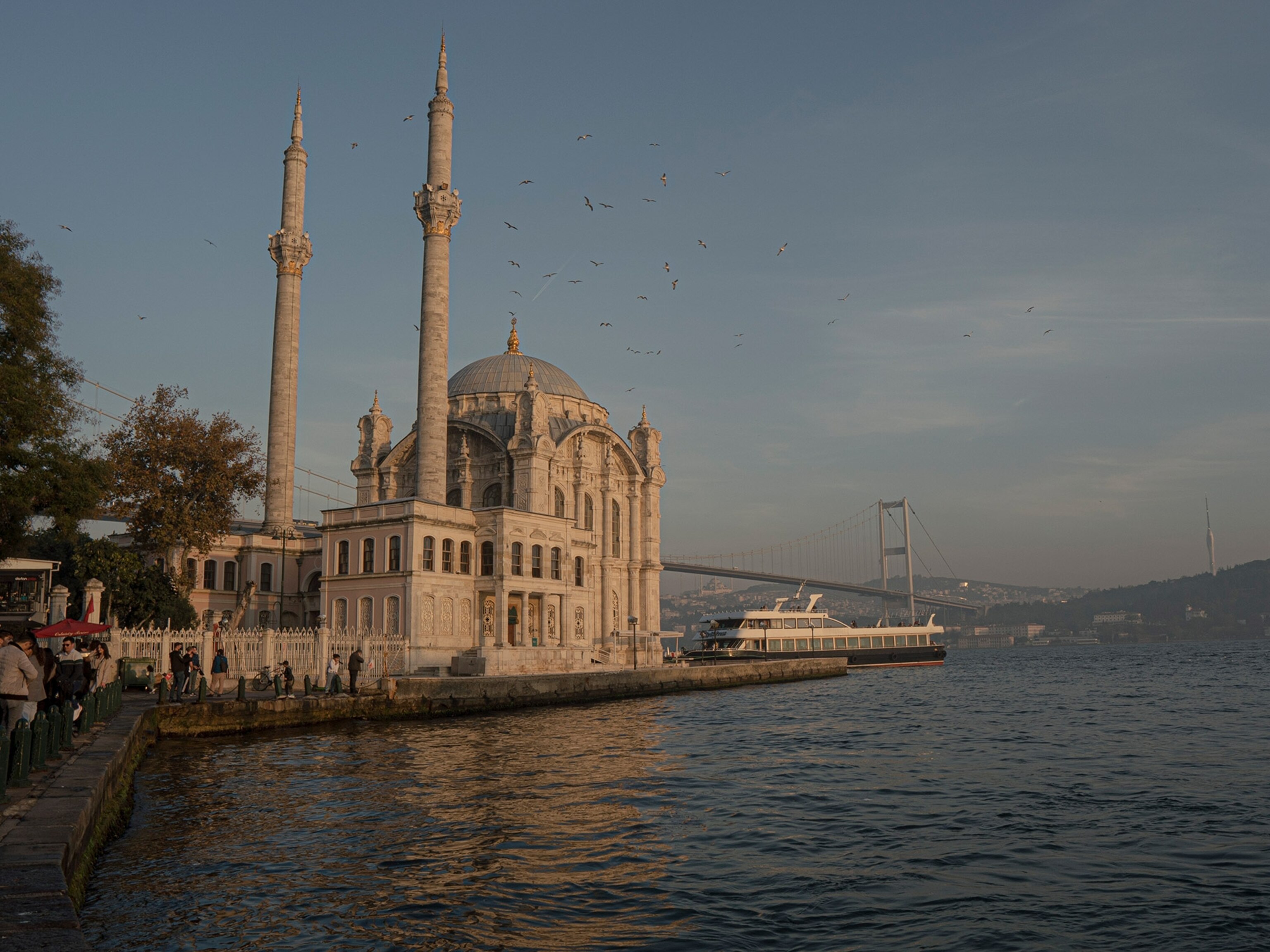
What can we learn from Istanbul’s 3,000 mosques?
- History & Culture
- Environment
- Paid Content
History & Culture
- History Magazine
- Terms of Use
- Privacy Policy
- Your US State Privacy Rights
- Children's Online Privacy Policy
- Interest-Based Ads
- About Nielsen Measurement
- Do Not Sell or Share My Personal Information
- Nat Geo Home
- Attend a Live Event
- Book a Trip
- Inspire Your Kids
- Shop Nat Geo
- Visit the D.C. Museum
- Learn About Our Impact
- Support Our Mission
- Advertise With Us
- Customer Service
- Renew Subscription
- Manage Your Subscription
- Work at Nat Geo
- Sign Up for Our Newsletters
- Contribute to Protect the Planet
Copyright © 1996-2015 National Geographic Society Copyright © 2015-2024 National Geographic Partners, LLC. All rights reserved
From DIY pilgrimages to halal restaurant tips: how this travel blogger built a community of Muslim travelers

Jan 21, 2022 • 6 min read
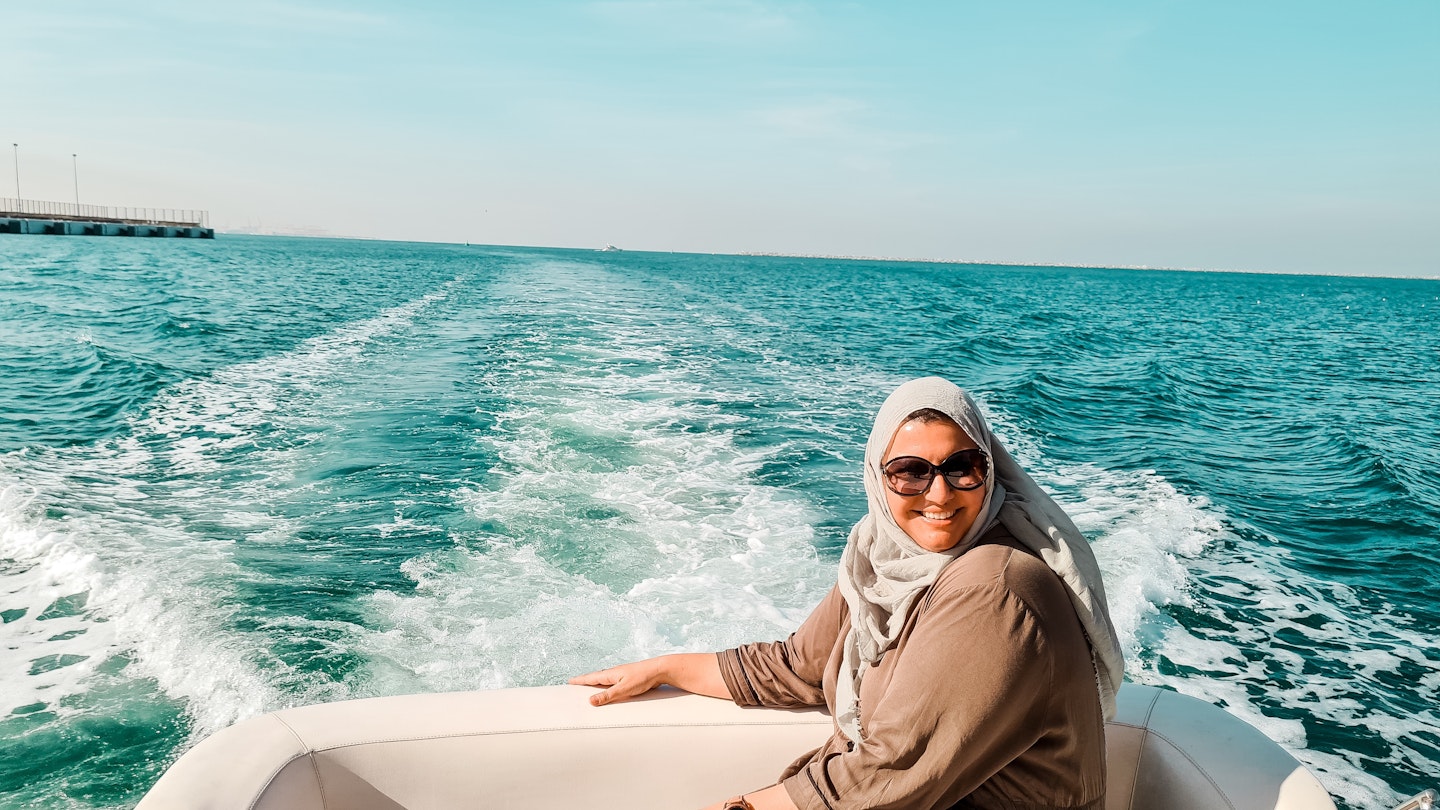
Elena Nikolova (pictured) has spent years building a resource for Muslim travelers who are looking for relevant information and good deals.
Elena Nikolova converted to Islam in 2009. Four years later, she channeled her wanderlust into a new endeavor: helping other Muslims travel the world.
On one of Elena Nikolova’s first trips as a Muslim, she realized travel for her had changed forever. Visiting Bulgaria from the United Kingdom , she saw how her new halal diet was at odds with her pork-heavy, Bulgarian-Greek upbringing. It wasn’t long before Nikolova also noticed she was getting extra checks at the airport and more attention once she landed because of her hijab.
“I realized that whether we wanted it or not, there is prejudice against those who wear a hijab,” Nikolova said. “I realized that kind of puts Muslims off traveling.”
Since she converted to Islam in 2009, Nikolova has worked to make travel more accessible and comfortable for Muslims. A lover of deals, she began to share cheap fares and travel hacks on social media to encourage others in her new community to travel too. As a student in the UK, she often booked the longest layovers possible on her way back home to Greece just so she could explore new places.
An online forum for advocating Muslim travel
Upon the urging of a friend, Nikolova transformed her expertise into the blog Muslim Travel Girl in 2013, with the goal of helping Muslims travel while being confident in their identities and without breaking the bank. Right away, she started receiving questions related to airport security and whether certain countries were welcoming to Muslims. Her readers, mostly based in North America and Europe , were apprehensive. One of Muslim Travel Girl’s most popular videos , for example, is on navigating airports as a hijab-wearing Muslim woman.
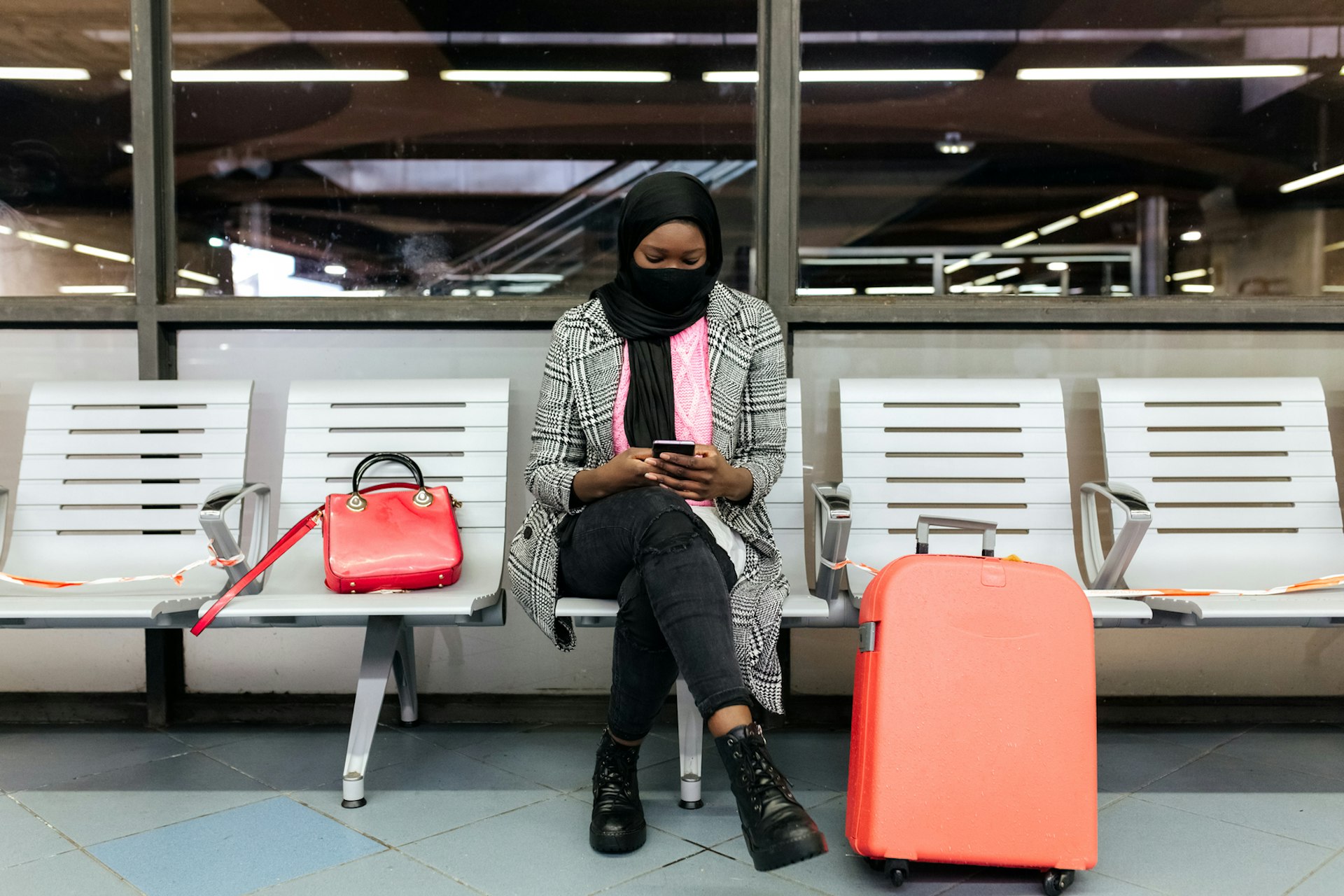
Building a comfort zone
“Throughout the past seven years, we've gone through [issues with] the media and Muslims, and the hijab and problems with women traveling,” she said. “The whole point of a Muslim travel blog is to help and encourage those people, to give them the resources to actually find destination information.”
While other resources exist, Nikolova says it was especially hard to find information that spoke directly to the experience of traveling as a Muslim when she started the blog. “Even though travel [for Muslims] in general is not so different, we have some differences, like [needing] places to pray or [specific] food to eat,” she said. “Not every Muslim needs these, but it should be there.”
A recent survey found the availability of halal food and prayer facilities among the most cited faith-based needs of Muslim travelers. Since 9/11, many Muslim travelers say they’ve faced discrimination at airports and on airplanes, ranging from extra security searches and intense questioning by airport staff to unexplainable visa troubles and hostility from fellow passengers.
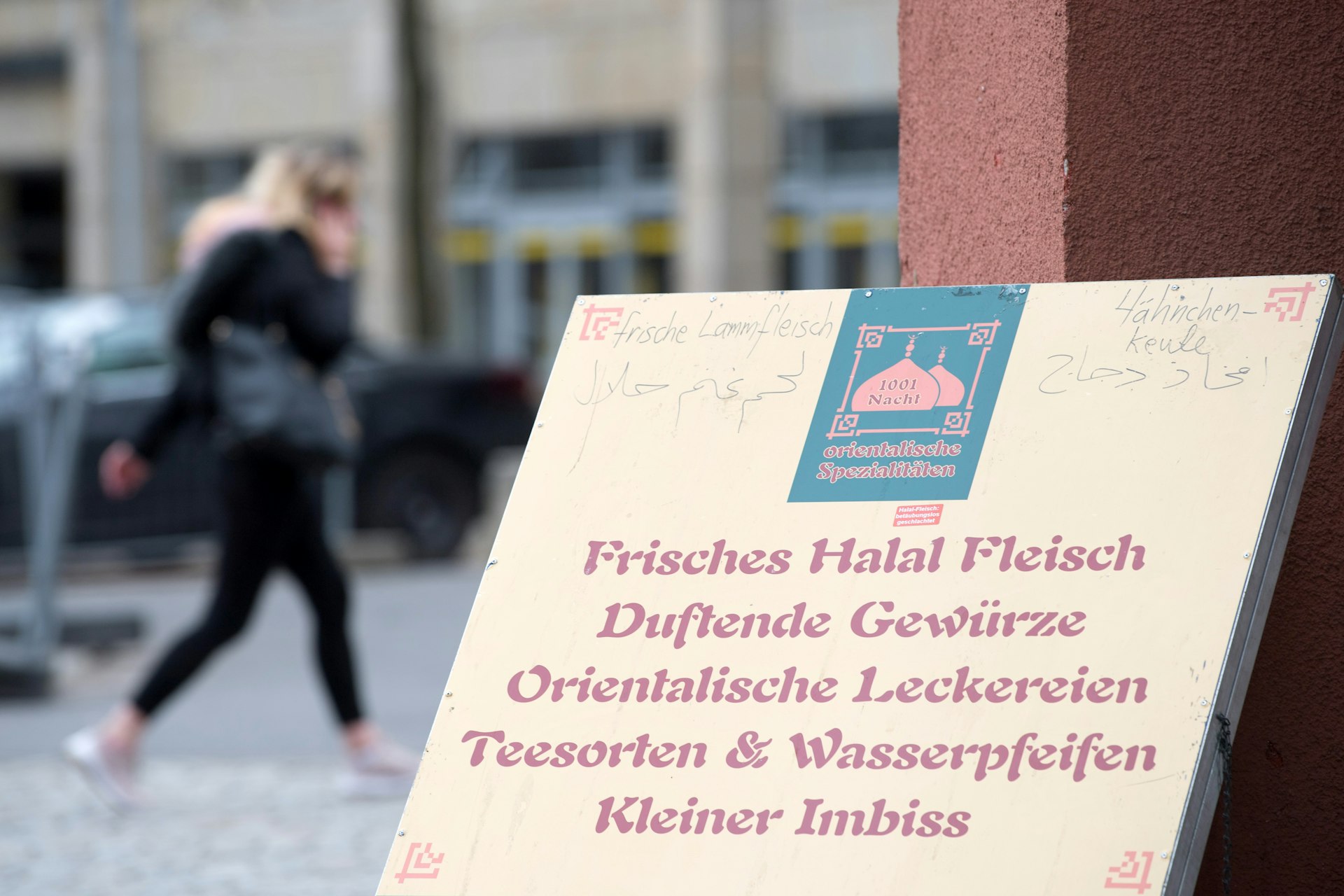
The 'halal tourism' boom
At the same time, the Muslim-friendly travel market, or “halal tourism” as some call it, has been booming. The industry caters to Muslim travelers looking for destinations that meet their faith-based needs, be it a place to pray, alcohol-free hotels or women-only pools and spas. Before the COVID-19 pandemic hit, it was estimated that by 2026, 230 million Muslim tourists would travel, locally and abroad, up from 98 million in 2010. By that time, Muslim travelers were expected to inject $300 billion into the global economy. With COVID-19, it’s now estimated it will take until 2023 to return to the same levels of Muslim tourists seen in 2019.
Nikolova attributes this increase in Muslim travelers to the global aspirations of younger Muslims, more disposable income and the persuasive power of social media. With more travelers, she says, has also come more blogs on Muslim-friendly travel, more interest from big brands and companies, conferences on the topic, and travel agencies like Halalbooking.com .
From credit card rewards to dinner recommendations
As the demographic makeup of Muslim travelers has changed, so has what Nikolova’s readers want. While initially some of Muslim Travel Girl’s most popular and requested posts were on the practicalities of traveling as a Muslim, she says now that more Muslims are traveling, the interest has shifted to what destinations to visit, insider travel tips and halal food recommendations in those places. One of their most popular topics is advice on DIY Umrah , so travelers can take the Islamic pilgrimage to Mecca without using a travel agent or expensive tour package.
Bassam Ansari, who is based in Saudi Arabia , first discovered Muslim Travel Girl in 2013 through a friend. He says he often visits the site for its hotel and flight deals and has saved significant money through the site’s advice, which he finds to be personable and genuine.
“Using her reviews and travel advice I have found the best possible hotel options in quite a few different destinations,” he said. For example, Ansari says he saved 70 percent on the cost of a standard hotel room in Mecca during Ramadan, finding a room for $300 instead of the usual $1,000, because of Nikolova’s advice on how to effectively buy and use hotel reward points.
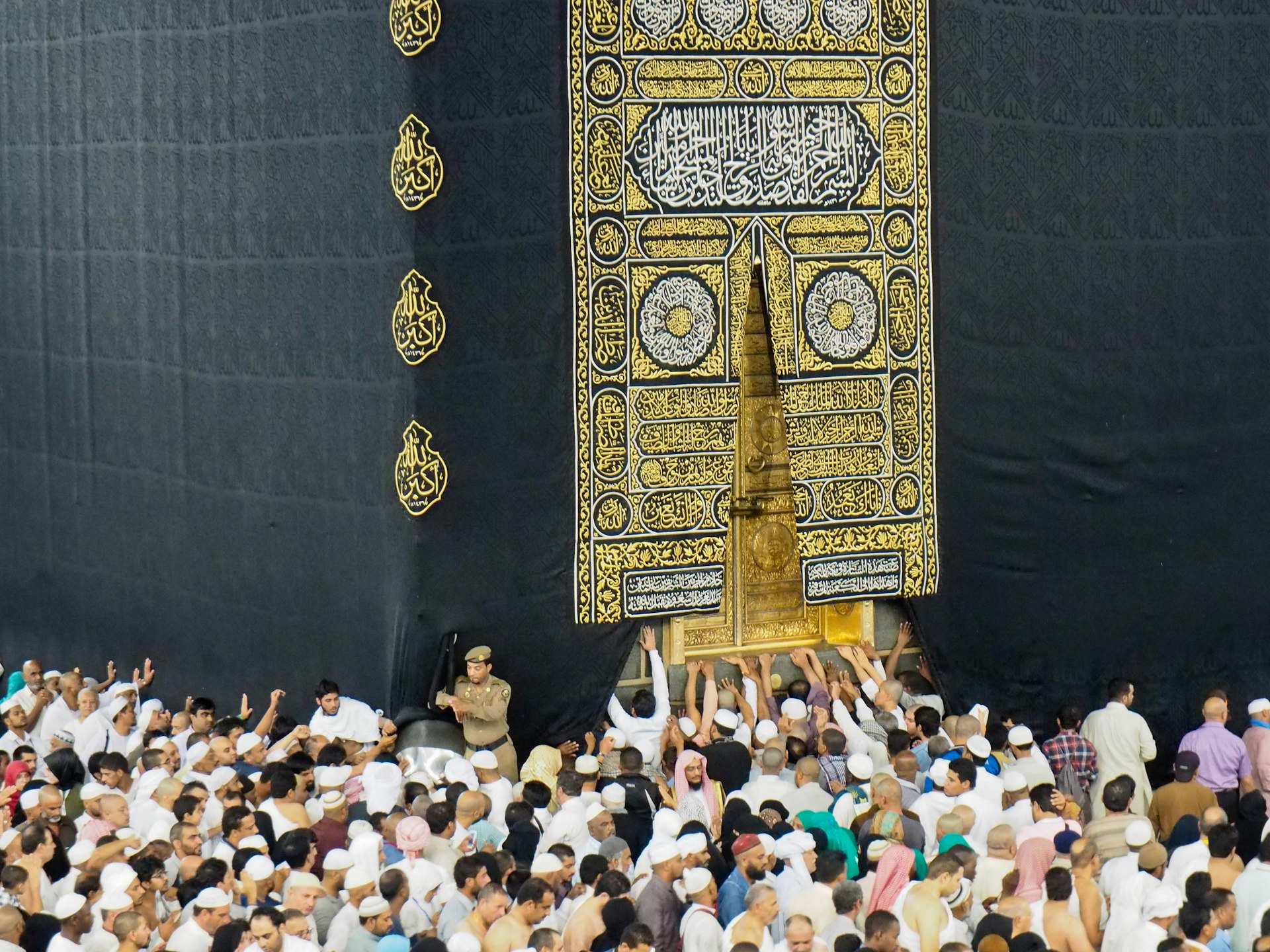
Small changes that make a big difference
Nikolova, who splits her time between Saudi Arabia and the UK, says Muslim Travel Girl is now one of the largest Muslim-friendly blogs in the West. She works on it full-time and also offers consultancy services to hotels and resorts on how to be more accommodating to Muslim guests. Even simple changes like providing soft drinks, non-alcoholic wine or fresh fruit in a welcome package, instead of wine, which is customary in places like Greece, can make a big difference in making someone feel more comfortable, she says.
“It's important to feel safe when you travel and that your needs as a Muslim traveler are taken care of. This is why I'm passionate about…working with hotels in the industry to provide more facilities and more knowledge for Muslims,” she said. “Every destination should be Muslim friendly.”
Having converted to Islam as an adult, Nikolova says she is able to identify with both non-Muslims and Muslims, and that sense of empathy helped in the initial stages of writing Muslim Travel Girl. She says her expertise hasn’t been questioned because she converted to the religion, instead of being born into it, though she can understand that point of view.
“When you are writing about something that is on a specific inclusivity, whether it's halal travel or whether it is accessibility travel, you have to have a basic understanding and principles in order to be accurate in your writing,” she said. “For me, I'm a Muslim, I'm a travel expert, and I have that knowledge because I've worked and lived that life for the past 10 years.”
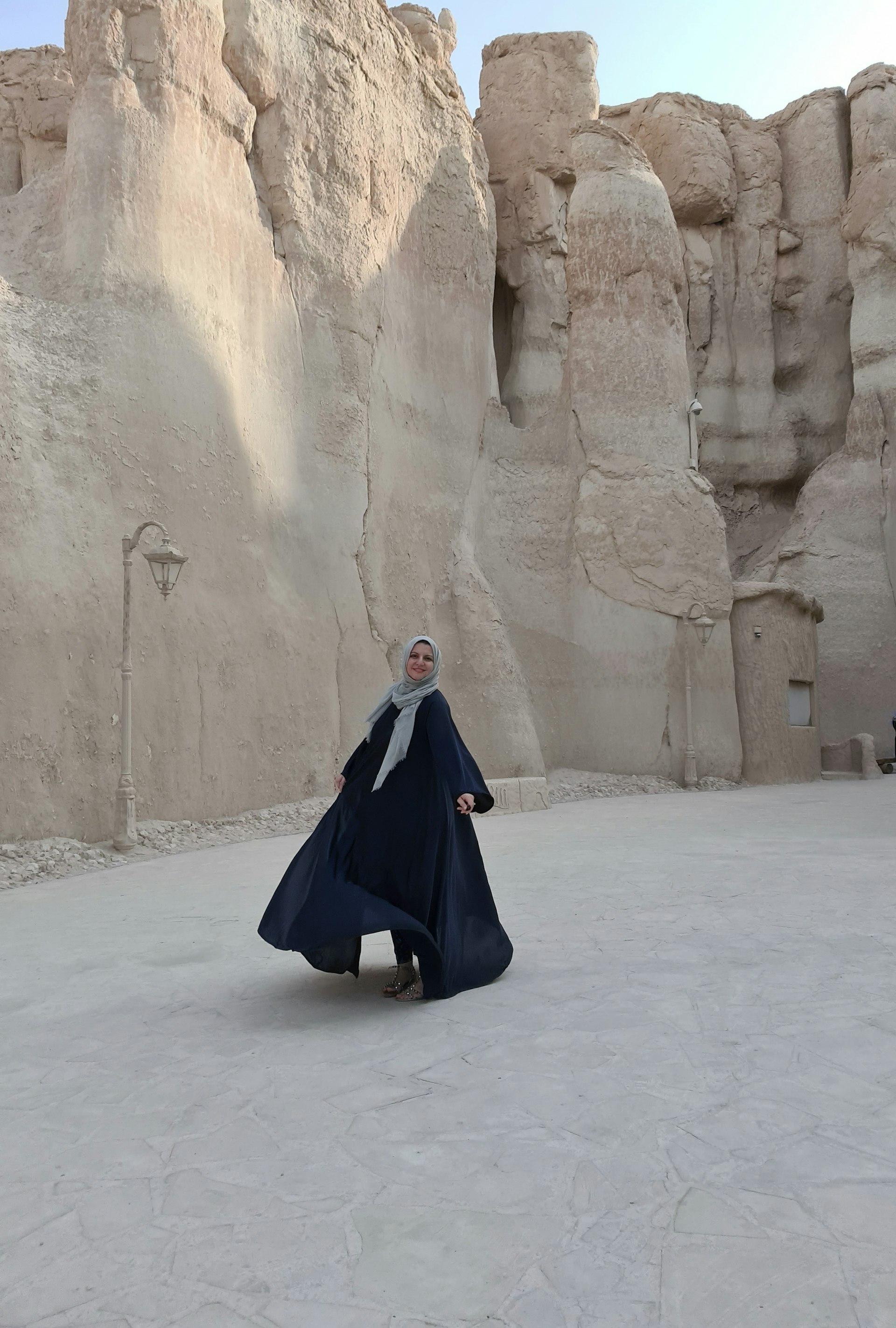
Travel opens your mindset
Part of why travel is so important, Nikolova says, is because it can counter misconceptions and prejudice. When she converted to Islam, for instance, her Greek Orthodox parents were not happy about it. But after she and her mother traveled to numerous countries together, including her mother spending a year in Doha, Qatar when Nikolova’s daughter was born, things changed.
“It's one of the reasons why I'm so passionate about traveling and encouraging Muslims to travel, because you open your mindset,” Nikolova said. “Traveling brings us closer. You wouldn't know your neighbor if you didn’t talk to them. It's the same thing with going and exploring a different city; you wouldn't meet locals and talk to them if you didn't visit.”
You might also like: Hajj Diaries: returning home How Muslims around the world are celebrating Ramadan during the pandemic Hajj Diaries: performing the Hajj
Safety recommendations and restrictions during a pandemic can change rapidly. Lonely Planet recommends that travelers always check with local authorities for up-to-date guidance before traveling during Covid-19 .
Explore related stories

Destination Practicalities
Mar 26, 2024 • 6 min read
From avoiding snowbirds to visiting local tribes, the Everglades has lots to know before you go.

Mar 22, 2024 • 4 min read

Mar 15, 2024 • 10 min read

Mar 13, 2024 • 7 min read

Mar 6, 2024 • 8 min read
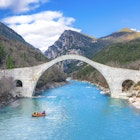
Mar 4, 2024 • 6 min read

Mar 1, 2024 • 3 min read

Feb 24, 2024 • 7 min read
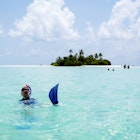
Feb 22, 2024 • 5 min read

Feb 19, 2024 • 7 min read

- Mathematics
- Social Sciences
- Agriculture
- Sustainability
- Architecture
- World Events
- Manuscripts
Travellers and Explorers from a Golden Age
By salim al-hassani - 1001 book chief editor published on: 1st august 2020.
5 / 5. Votes 2
No votes so far! Be the first to rate this post.
Since the Quran said every able-bodied person should make a pilgrimage, or hajj, to Mecca at least once in their lifetime, thousands travelled from the farthest reaches of the Islamic empire to Mecca, beginning in the seventh century. As they travelled, they made descriptions of the lands that they passed through. Some of the most famous include...
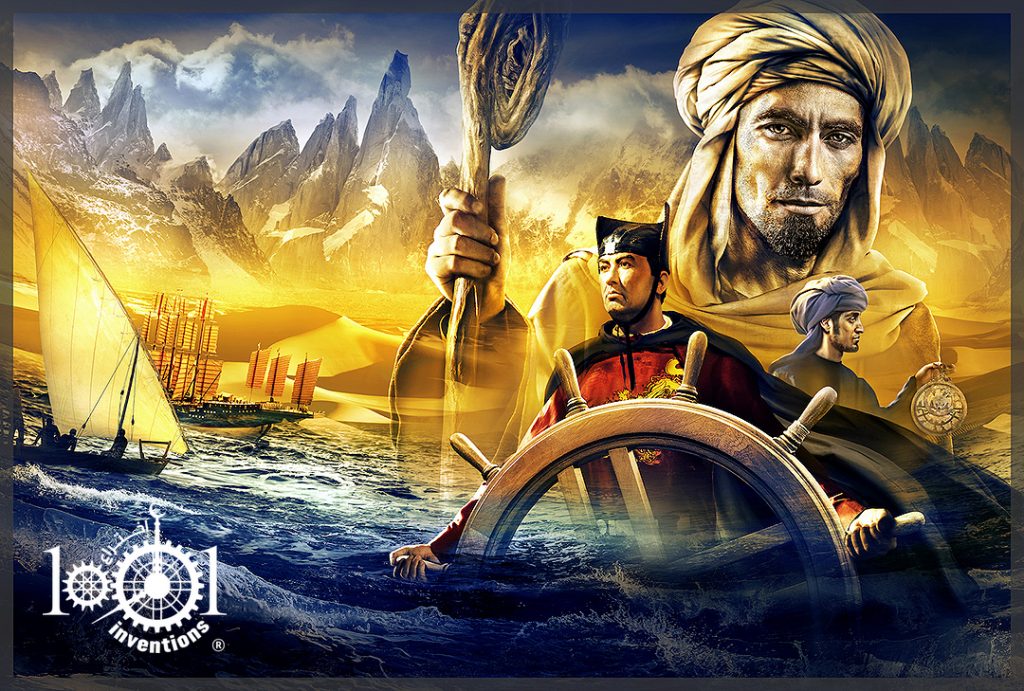
From left. Imaginary potrait of Zheng He, Ibn Battuta and Ibn Majid from 1001 Inventions’ ‘Journeys from a Golden Age’ ( Source )
Editorial Note: Extracted from “1001 Inventions: The Enduring Legacy of Muslim Civilization Reference (4th Edition) Annotated”. First published in 1001 Inventions website – www.1001inventions.com/travellers
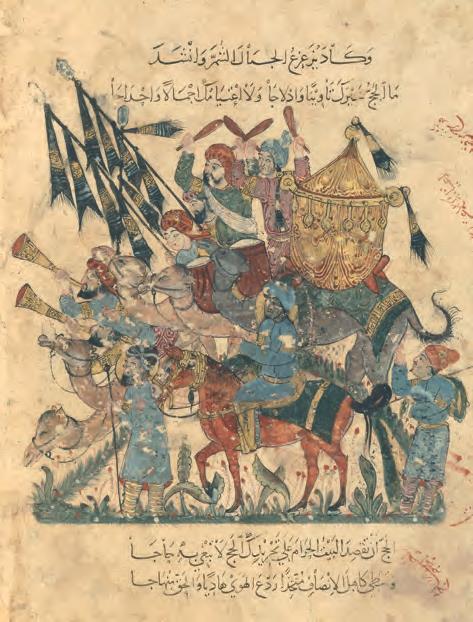
A 13th-century manuscript shows a caravan en route (Source: 1001 Inventions: The Enduring Legacy of Muslim Civilization, 3rd edition, page 247)
Al-Biruni, in the 11th century, wrote in his book the Dema r cation o f the L imits o f the A r eas that Islam has already penetrated from the Eastern countries of the earth to the Western.
It spread westward to Spain [Al-Andalus], eastward to the borderland of China and to the middle of India, southward to Abyssinia and the countries of Zanj Zanj [meaning black Africa from Mali to Kilwa (Tanzania) and Mauritania to Ghana], eastward to the Malay Archipelago and Java, and northward to the countries of the Turks and Slavs. Individual Muslim sultans ruled, and although there was conflict at times between them, an ordinary traveller could pass through the various regions.
Since the Quran said every able-bodied person should make a pilgrimage, or hajj, to Mecca at least once in their lifetime, thousands travelled from the farthest reaches of the Islamic empire to Mecca, beginning in the seventh century.
As they travelled, they made descriptions of the lands that they passed through. Some of the most famous include:
Al – Y a ’ q u bi , 8 th Century
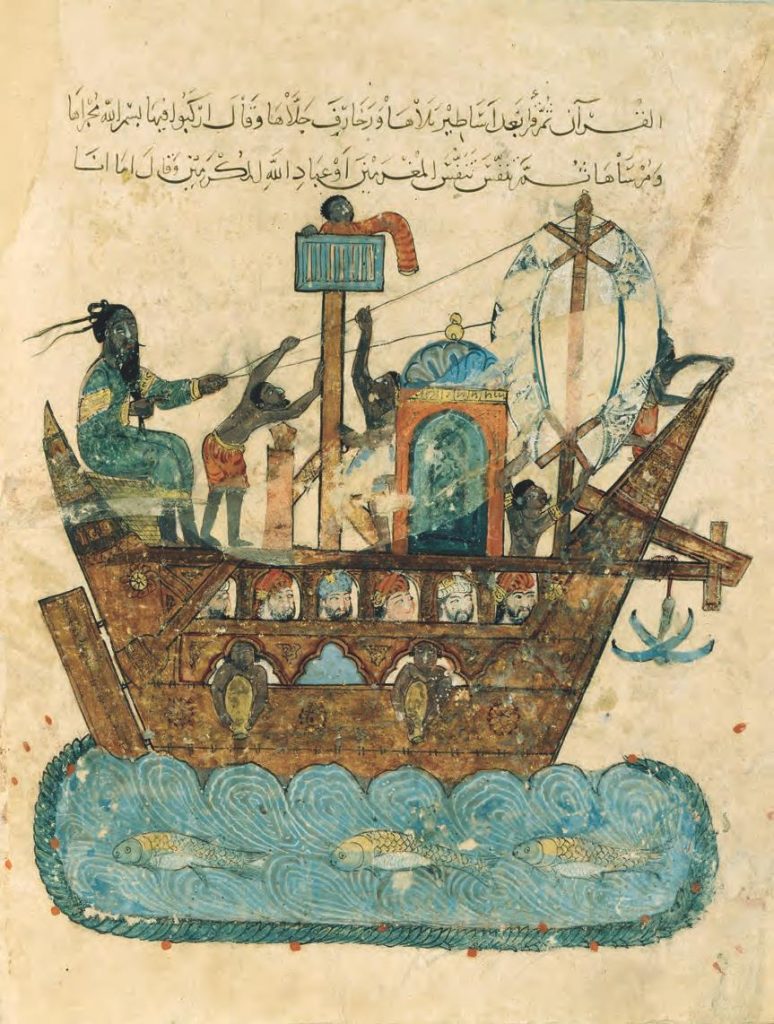
A 13th-century miniature depicts an eastern Muslim boat from the classical Arabic work of literature Maqamat al- Hariri. The Arabic writing refers to a sea voyage, and mentions a verse from the Quran referring to Noah’s ark. This is usually used as a blessing: “In the name of Allah, the one who protects the ship’s sailing, seafaring and berthing.” (Source: 1001 Inventions: The Enduring Legacy of Muslim Civilization, 3rd edition, page 248)
He wrote the Book of C o untries, which he completed in 891 after a long time spent traveling, and he gave the names of towns and countries, their people, rulers, distances between cities and towns, taxes, topography, and water resources. [1]
Al-Ya’qubi wrote that “China is an immense country that can be reached by crossing seven seas; each of these with its own color, wind, fish, and breeze, which could not be found in another, the seventh of such, the Sea of Cankhay [which surrounds the Malay Archipelago] only sailable by a southern wind.”
Ab u Z ay d H a san, 9 th Century
He was a Muslim from Siraf, and told about boats that were sailing for China from Basra in Iraq and from Siraf on the Gulf. Chinese boats, much larger than Muslim boats, also visited Siraf, where they loaded merchandise bought from Basra. Abu Zayd also deals with the Khmer land and its vast population, a land in which indecency, he notes, is absent.
I bn W a h ha b, 9 th Century
He was a trader from Basra who sailed to China and described the Chinese capital as divided into two halves, separated by a long, wide road. On one side the emperor, his entourage, and administration resided, and on the other lived the merchants and ordinary people. Early in the day, officials and servants from the emperor’s side entered the other, bought goods, left, and did not mingle again. [2]
Al – Muq a d da s i, ( ca 9 45 – 100 0 )
He was a geographer who set off from his home in Jerusalem many centuries before Ibn Battuta. He also visited nearly every part of the Muslim world and wrote a book called Best Divisions for K n o wle dg e of the Regions , completed around 985. [3]

One of the accurate drawing based on personal observation is the sketch of the famous Lighthouse of Alexandria by the Andalusian traveller, Abu Hamid Al-Gharnati . He visited Alexandria first in 1110 and again in 1117. ( Source )
I bn Khur r adadh bih, 10 th Century
He wrote the Book of Roads an d P r o vinces , which gave a description of the main trade routes of the Muslim world, referring to China, Korea, and Japan, and describing the southern Asian coast as far as the Brahmaputra River, the Andaman Islands, Malaya, and Java. [4] Ibn Khurradadhabih died in 912.
Ibn Fadlan, 10 th Century
Ibn Fadlan was an Arab chronicler, and in 921 the caliph of Baghdad sent him with a diplomatic mission to the king of the Bulgars of the Middle Volga. He wrote an account of his journey, and this was called R i s alah . Like Ibn Battuta’s R ihla , the R i s alah is of great value because it describes the places and people of northern Europe, in particular a people called the Rus from Sweden. [5]
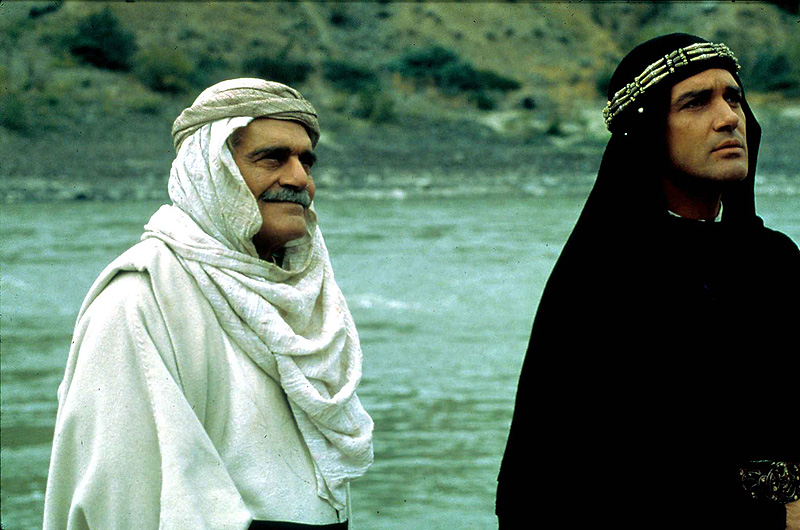
Yaqut a l- H a m a wi, 13 th C entur y
He was a geographer who wrote the Dictionary o f C o untries about countries, regions, towns, and cities that he visited, all in alphabetical order, giving their exact location, and describing monuments, resources, history, population, and leading figures. [6]
Z ak ar i y a ’ i b n Mu h am ma d a l- Q a z wini, 13 th C entur y
He left accounts of the marvellous creatures that thrive in the China Sea, notably very large fish (possibly whales), giant tortoises, and monstrous snakes, which land on the shores to swallow whole buffaloes and elephants. [7]
I bn S a’id a l- Ma ghr i bi, 13 th C entur y
He gave the latitude and longitude of each place he visited, and wrote much on the Indian Ocean islands and Indian coastal towns and cities.
Al-Di ma s h qi , A 14 th C entur y
He gives very detailed accounts of the island of Al-Qumr, also called Malay Island or Malay Archipelago. He says there are many towns and cities; rich, dense forests with huge, tall trees; and white elephants. Also there lives the giant bird called the Rukh , a bird whose eggs are like cupolas. The Rukh is featured in a story about some sailors breaking and eating the contents of its egg; the giant bird chased after them on the sea, carrying huge rocks, which it hurled at them relentlessly. The sailors only escaped with their lives under the cover of night. [8]
This story, like other accounts by travellers, formed the basis of many of the tales that enrich Islamic literature, such as The A dventures of S inbad the S ailor and The Th o u s and and One Nights . The richness of these thousand-year-old accounts has inspired many writers and filmmakers.
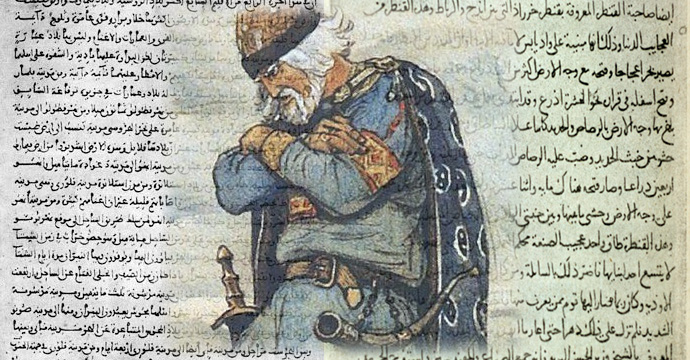
Ibn Battuta, 14 th Century
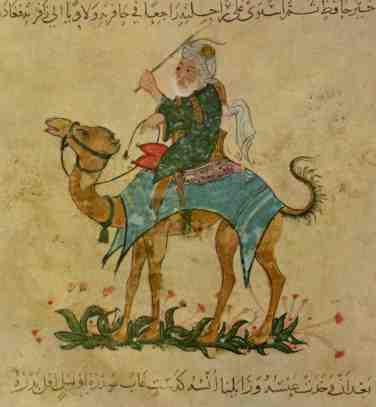
Imaginary Painting of Ibn Battuta
Ibn Battuta was only 21 on June 13, 1325, when he set out alone on his donkey at the beginning of a 3,000-mile overland journey to Mecca from Tangier in Morocco. He left his family, friends, and hometown, and would not see them again for 29 years. Some he never saw, because the plague reached them before he returned. He journeyed by walking, riding, and sailing more than 75,000 miles, through more than 40 modern countries.. [9]
His accounts have placed the medieval world before us, so we know that gold traveled from south of the African Sahara into Egypt and Syria; pilgrims continuously flowed to and from Mecca; shells from the Maldives went to West Africa; pottery and paper money came west from China. Ibn Battuta also flowed along with the wool and the wax, gold and melons, ivory and silk, sheikhs and sultans, wise men and fellow pilgrims. [10] He worked as a qadi , a judge, for sultans and emperors, his journey a grand tour, mixing prayer, business, adventure, and the pursuit of knowledge. He returned to his native city three decades later and recounted stories of distant, exotic lands. [11] The sultan of Fez (Fes), Abu ’Inan, asked him to write down his experiences in a Rihla , a travel book, and with a royal scribe, Ibn Juzayy, he completed the task in two years. His account of medieval Mali in West Africa is the only record we have of it today. [12]
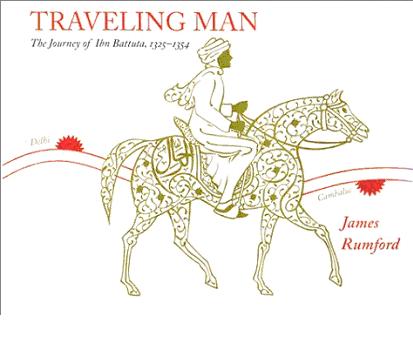
The Traveling Man: the Journey of Ibn Battuta, 1325-1354 by James Rumford (Houghton Mifflin, 2001). ( Source )
Other travellers from the ninth and tenth centuries include Ibn al-Faqih, who compares the customs, food diets, codes of dress, rituals, and also some of the flora and fauna of China and India. [13] Ibn Rustah focuses on a Khmer king, surrounded by 80 judges, and his ferocious treatment of his subjects while indulging himself in drinking alcohol and wine, but also his kind and generous treatment of the Muslim. [14] Abu al-Faraj dwells on India and its people, customs, and religious observations. He also talks of China, saying it has 300 cities, and that whoever travels in China has to register his name, the date of his journey, his genealogy, his description, age, what he carries with him, and his attendants. Such a register is kept until the journey is safely completed. The reasoning behind this was a fear that something might harm the traveller and thereby bring shame to the ruler.
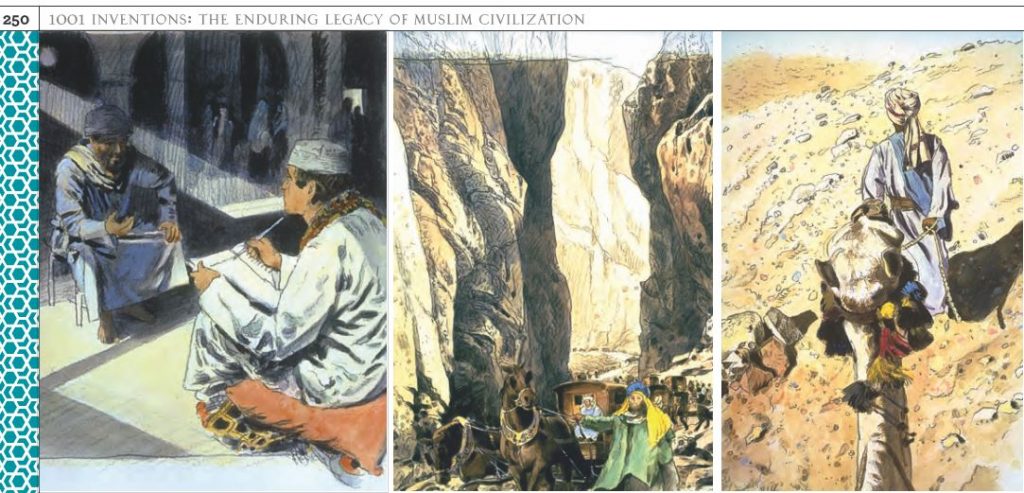
An artist’s rendering shows Ibn Battuta dictating his Rihla, passing through a dangerous gorge, and walking with his camel. (Source: 1001 Inventions: The Enduring Legacy of Muslim Civilization, 3rd edition, page 250)
Get the full story from 1001 Inventions: The Enduring Legacy of Muslim Civilization Reference (4 th Edition) Annotated. www.amazon.co.uk/1001-Inventions-Civilization-Reference-Annotated-ebook/dp/B0775TFKVY/
[1] The Kitab al-buldan appears in Bibliotheca ceocraphorum arabicorum Vll, M. J. de Goeje, ed. (1892); ed and trans into French by G. Wiet, Les Pays (1937). [2] Carra de Vaux, Les Penseurs, op. cit., 57-58. [3] Al Muqadassi, op. cit. [4] S. M. Z. Alavi, Arabic Geography, op. cit., 27. [5] On Muslim accounts of Scandinavia, see Harris Birkeland, Nordens hidstorie I middelalderen etter arabiskenkilder, Norske Videnskaps-Akademi i Oslo, Skrifter, Hist.-Filos. Klasse, 2 Scriffer, 1954, 2 (1954). [6] Ibn Abd Allah al-Hamawi Yaqut, Jacut’s Geographisches Worterbuch, F. Wustenfeld, ed., 6 Vols. (Leipzig, 1866-70). -C. Bouamrane and L. Gardet, Panorama de la Pensee Islamique (Paris: Sindbad, 1984), 260. [7] Ibid, 302-04. [8] The work was edited by A. F. Mehren, Quarto (St. Petersburg, 1866), 375 pages. – G. Sarton, Introduction, op. cit., Vol. 3, 800. – G. Ferrand, Relations de Voyages, 363-93. [9] Ibn Battuta, Voyages d’Ibn Battuta, Arabic text accompanied by French trans. by C. Defremery and B. R. Sanguinetti, preface and notes by Vincent Monteil, I-IV (Paris, 1968, reprint of the 1854 ed.). [10] Ibn Battuta, Travels in Asia and Africa, trans. and selected by H. A. R. Gibb (London: Routledge, 1929). [11] F. Rosenthal, Ibn Battuta, Dictionary of Scientific Biography, op. cit., Vol. 1, 517. – R. B. Winder, Ibn Battuta, in The Genius of Arab Civilisation, J. R. Hayes, ed., op. cit., 210. [12] Ibn Battuta, Travels in Asia and Africa, Gibb, op cit. [13] Ibn al-Faqih al-Hamadhani, auctore, Kitab al-buldan, M. J. De Goeje, ed., Bibliotheca geographorum arabicorum, 5 (Leiden, 1885). [14] G. Sarton, Introduction, op. cit., Vol. 1, 635. – G. Ferrand, Relations de Voyages, op. cit., 54-66.
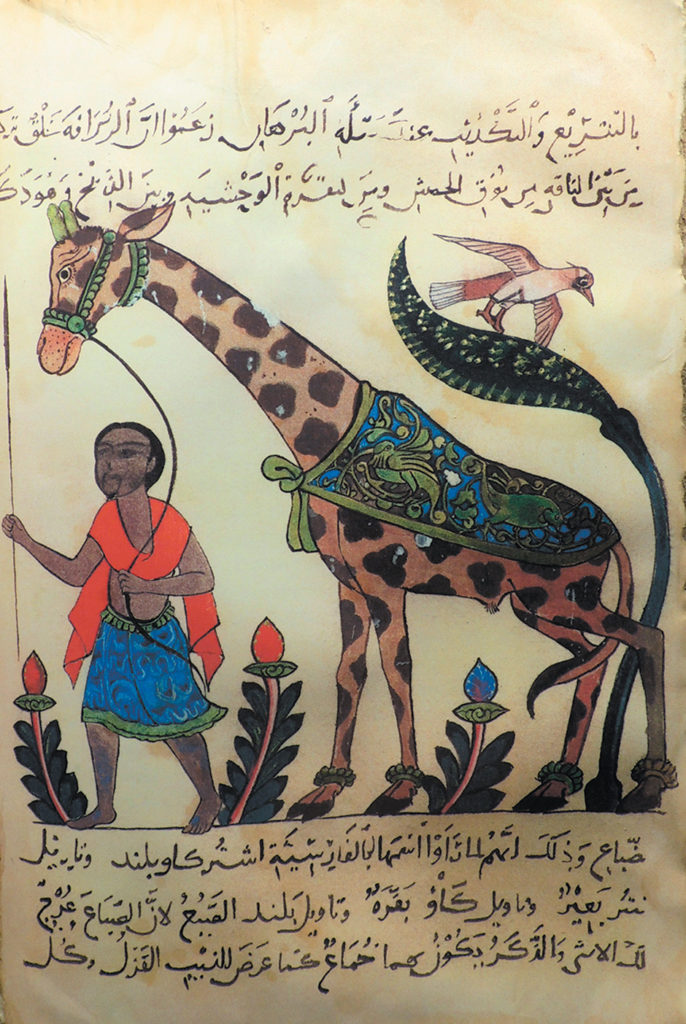
Al-Ǧāḥiẓ/Jahiz, Kitāb al-ḥayawān (Book of the animals), Syria, 15th C. Milan, Biblioteca Ambrosiana, Ms. arab. B 54, f. 36 (Source)
Cem Nizamoglu
Related articles.

Video Message by Professor Salim Al-Hassani to the“Science and Technology in Islamic Civilization” conference

The Levantine Hajj route and the ruins of the people of Lut: A study of the Islamic geographical sources
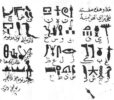
Video: What did Medieval Muslims Think of Ancient Egypt | Al Muqaddimah

Forward by HRH Prince Charles, now HM King Charles III, to the 1001 Inventions Book

Fine Dining
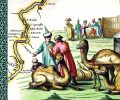
Arabic Mission to the Volga

An Ottoman Cosmography: Translation of Katib Celebi’s Cihannuma

Video: Al Idrissi – The Muslim Geographer

1001 Inventions – Home

Celebrate Chemistry Week with 1001 Inventions in Manchester

The Story Begins – The Golden Age


The Ottoman Mosque Fallacy: Places of Worship Facing the Kaaba or “Monuments of Jihad”?
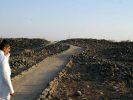
Overland Hajj Route Darb Zubayda

Hospital Development In Muslim Civilisation

The Petra Fallacy: Early Mosques do face the Sacred Kaaba in Mecca

The Mystery of Hayy Ibn Yaqzan

Memory and Erasure in the Story of the West: Or, Where have All the Muslims Gone?

Shining light upon light

Peregrination and Ceremonial in the Almohad Mosque of Tinmal

Turkish Medical History of the Seljuk Era

Keep your distance – health lessons from the history of pandemics
From this author.

New Annotated Reference (Text Only) Edition of 1001 Inventions Book

The Birth of Modern Astronomy

On the Coffee Trail
Muslim Heritage: Send us your e-mail address to be informed about our work.
- International Day of Remembrance of the Victims of Slavery and the Transatlantic Slave Trade
- World Water Day
- Flowing Through History: Water Management in Muslim Civilization
- International Women’s Day
- Ibn al-Zarqalluh’s discovery of the annual equation of the Moon
- News Desk - 1,907,448 views
- FSTC - 1,828,433 views
- Lectures on Islamic Medicine at RCP, London - 993,714 views
- FSTC Activity Report 2015 - 366,347 views
- 1001 Inventions - 205,269 views
- Media Desk - 164,062 views
- What does Islam say about the Flat earth?- Sabreen Syeed - 113,466 views
- Libraries of the Muslim World (859-2000) - 94,054 views
- Muslim Founders of Mathematics - 90,127 views
- Contact - 64,781 views

Discover the golden age of Muslim civilisation.
This Website MuslimHeritage.com is owned by FSTC Ltd and managed by the Foundation for Science, Technology and Civilisation, UK (FSTCUK), a British charity number 1158509.
© Copyright FSTC Ltd 2002-2020. All Rights Reserved.
- Privacy Policy
- Terms and Conditions
Privacy Overview
- en العربية ar English en Español es Français fr हिन्दी hi Indonesian id Türkçe tr Uygur ug اردو ur
Fasting while Traveling: Permissible?
Publication : 24-11-2001
Views : 264158
If a person travels in Ramadan and he is fasting, is it better for him not to fast, or should he continue fasting?
Summary of answer
Contents Related
Fasting while traveling: Permissible?
Fasting or not fasting while traveling: which is better.
Praise be to Allah.
The four Imams and the majority of the Sahabah and Tabi’in were of the view that fasting whilst traveling is permissible and is correct and valid. If the traveler fasts, it counts and he does not have to make it up. (Al-Mawsu’ah al-Fiqhiyyah, vol. 28, p. 73)
As to what is better, that depends:
1- If fasting and not fasting are the same, in the sense that fasting does not affect him, then in this case fasting is better, because of the following evidence:
- Abu’l-Darda’ (may Allah be pleased with him) said: “We went out with the Messenger of Allah (peace and blessings of Allah be upon him) [on a journey] during the month of Ramadan when it was intensely hot, until one of us would put his hand on his head because of the intense heat, and no one among us was fasting apart from the Messenger of Allah (peace and blessings of Allah be upon him) and ‘Abd-Allah ibn Rawahah.” (Narrated by al-Bukhari, 1945; Muslim, no. 1122)
- Fasting while traveling means that one fulfills one's duty more quickly, because making it up later means delaying it, but fasting in Ramadan means doing it sooner.
- It is usually easier for the one who has this duty, because fasting and breaking the fast with the people is easier than starting to fast all over again.
- It makes the most of a blessed time, namely Ramadan, for Ramadan is better than other times, because it is the time when fasting is obligatory. Based on this evidence the view of al-Shafi`i, which is that fasting is better in the case of one for whom fasting and not fasting are the same, is most likely to be correct.
2- If not fasting is easier for him, then in this case we say that not fasting (when traveling ) is better. If something will give him hardship, then in his case fasting becomes makruh, because doing something that causes hardship when there is a concession indicates that one is spurning a concession granted by Allah.
3- If it causes unbearable difficulty, then in this case it becomes haram for him to fast. The evidence for that is the report narrated by Muslim from Jabir ibn ‘Abd-Allah (may Allah be pleased with them), that the Messenger of Allah (peace and blessings of Allah be upon him) went out to Makkah in the year of the Conquest in Ramadan, and fasted until he reached Kura’ al-Ghamim. The people were fasting, but he called for a cup of water and lifted it up so that the people could see it, then he drank it. After that, he was told that some of the people had continued to fast. He said, “Those are the disobedient, those are the disobedient.” According to another report, he was told, “The people are finding it hard to fast, and they are waiting to see what you will do.” So he called for a cup of water after ‘Asr. (1114) So he described those who fasted even though it was very difficult as being disobedient. (Al-Sharh al-Mumti’ by Shaykh Muhammad ibn ‘Uthaymin (may Allah have mercy on him), vol. 6, p. 355).
Al-Nawawi and al-Kamal ibn al-Humam said:
“The ahadith which indicate that it is better not to fast are to be interpreted as referring to those who will be harmed by fasting; in some of them this is clearly stated, so they must be interpreted in this manner, so as to reconcile between the ahadith. That is better than neglecting some of them or claiming that they have been abrogated, without definitive evidence to that effect. In the case of those for whom fasting and not fasting are the same, they quoted as evidence the hadith of ‘Aishah (may Allah be pleased with her), that Hamzah ibn ‘Amr al-Aslami (may Allah be pleased with him) said to the Prophet (peace and blessings of Allah be upon him): “Should I fast whilst traveling ?” – and he used to fast a lot. He (the Prophet (peace and blessings of Allah be upon him)) said: “if you want to, then fast; if you don’t want to, then do not fast.” (Agreed upon)
And Allah knows best.
Was this answer helpful? No Yes
Source: Al-Mawsoo’ah al-Fiqhiyyah, vol. 28, p. 73
Similar Topics
When a Traveler By Plane Breaks the Fast
When Is It Forbidden for a Traveller to Break the Fast?
Travelling in order to avoid fasting?
Fasting of Those Always Travelling
share Question
You can ask your question on the website via this link: https://islamqa.info/en/ask
Log in Create an account
Password should contain small, capital letter and at least 8 characters long
Can't log in to your account?
If you do not have an account, you can click the button below to create one
If you have an account, log in
Create new account Log in
Reset Username or Password
Send feedback.
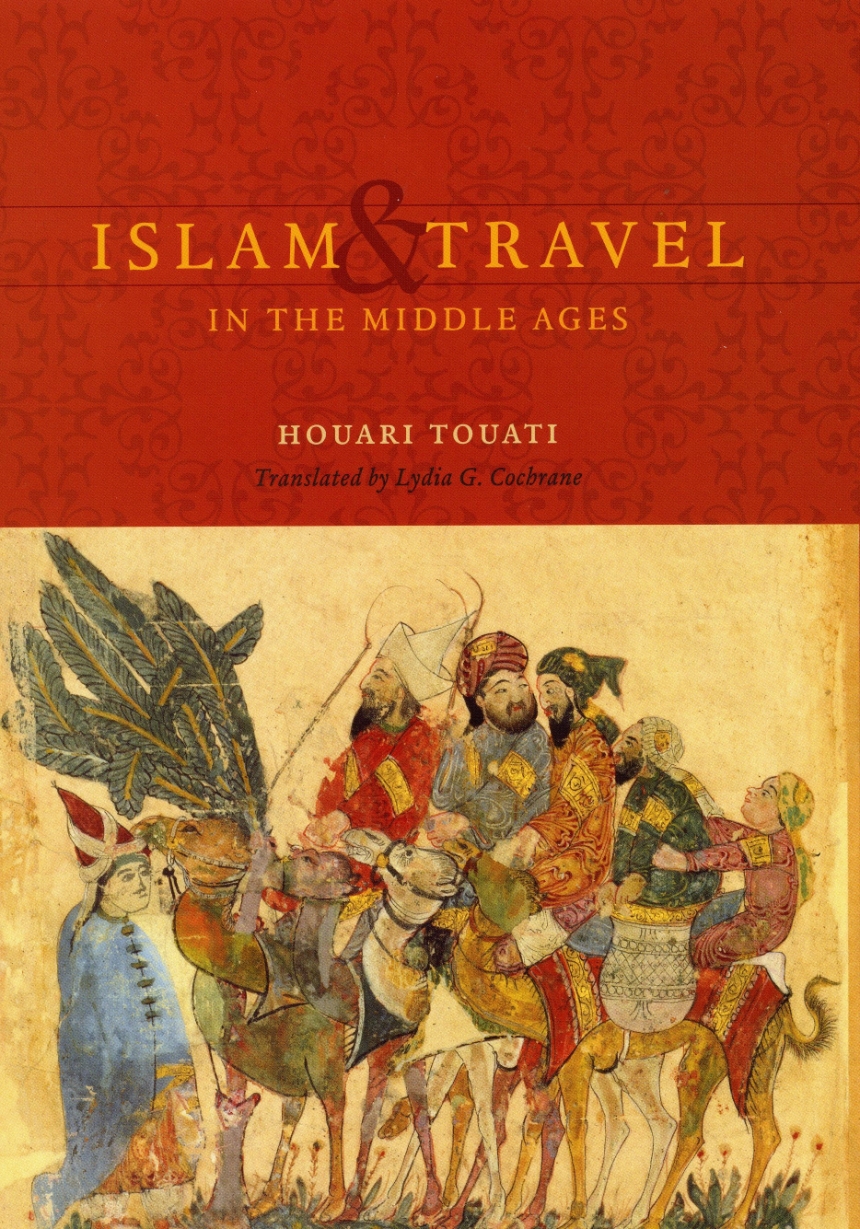
Islam and Travel in the Middle Ages
Houari Touati
In the Middle Ages, Muslim travelers embarked on a rihla , or world tour, as surveyors, emissaries, and educators. On these journeys, voyagers not only interacted with foreign cultures—touring Greek civilization, exploring the Middle East and North Africa, and seeing parts of Europe—they also established both philosophical and geographic boundaries between the faithful and the heathen. These voyages thus gave the Islamic world, which at the time extended from the Maghreb to the Indus Valley, a coherent identity.
Islam and Travel in the Middle Ages assesses both the religious and philosophical aspects of travel, as well as the economic and cultural conditions that made the rihla possible. Houari Touati tracks the compilers of the hadith who culled oral traditions linked to the prophet, the linguists and lexicologists who journeyed to the desert to learn Bedouin Arabic, the geographers who mapped the Muslim world, and the students who ventured to study with holy men and scholars. Travel, with its costs, discomforts, and dangers, emerges in this study as both a means of spiritual growth and a metaphor for progress. Touati’s book will interest a broad range of scholars in history, literature, and anthropology.
304 pages | 1 map | 6 x 9 | © 2010
Geography: Cultural and Historical Geography
History: Middle Eastern History
Literature and Literary Criticism: Classical Languages
Medieval Studies
Middle Eastern Studies
Religion: Islam
- Table of contents
- Author Events
Related Titles
“Much learning supports Touati’s book, which gives us a richer sense of the driving forces behind travel in the Islamic Middle Ages than we have had before.”
Francis Robinson | Times Literary Supplement
“This is an elegant work of exploration and synthesis, linking Greek analysis of the sensorium to Muslim debates concerning the priority of seeing over hearing. The range of original sources from Islamic civilization is stunning, including medieval litterateurs from al-Jāhiz to al-Bīrūnī to Ibn Khallikān. Travel as both experience and metaphor, practice and trope, is illumined here by Touati in cogent vignettes that engage—and advance—current debates about knowledge, its acquisition, its soundness, and its permeable boundaries. No other book like it exists in the library of scholarship on Islam and the Muslim world.”
Bruce B. Lawrence, Duke University
“Many of us appreciate the unique importance of travel and exile for Islamic literature and thought. In English, however, we have had nothing to rival Touati’s Islam and Travel in the Middle Ages , with its subtle, original argument, its elegant style, and its wide and profound coverage of original sources. Touati brings together a rich variety of topics and themes, with an underlying epistemological distinction—between ‘audition’ and ‘eyewitnessing’—that informed the experience of Muslim travelers and their literary output. We are fortunate to have this fluent, precise English translation.”
Michael Bonner, University of Michigan
“ Islam and Travel in the Middle Ages considers travel from an unorthodox and engaging perspective—not as a question of commerce, transportation, or engineering, but as conceptual category, intellectual quest, and epistemological value. By thoughtful engagement with Arabic texts of various genres, including but by no means limited to travelogues, Touati shows how knowledge was acquired, valued, packaged, and disseminated, as well as the categories by which it was conceived and defined. The publication of this work in French revealed a noticeable gap in our synthetic understanding of the voyage as both a mode of knowledge and a means for the production of knowledge in medieval Islamicate societies; it has now been enhanced in this painstaking English translation.”
Franklin D. Lewis, University of Chicago
“Elegantly written, superbly documented, and imaginative in scope and analysis, this erudite and interesting book is the definitive account of how travel in Islam was knowledge, practice, combat, image, and absence.”
Brannon Wheeler, United States Naval Academy
Table of Contents
Preface to the English-Language Edition (2010)
Acknowledgments (2000)
Introduction
Chapter 1: Invitation to the Voyage
The ‘ilm , an Onomastic Emblem
A Catastrophic Theory of Knowledge
The Genealogical Structure of Knowledge
Chapter 2: The School of the Desert
Linguists and Bedouins
The Stay in the Desert
A Geography of Pure Language
A Theory of the Stay in the Desert
Chapter 3: The Price of Travel
Financing a Voyage
Paying a Personal Price
Terminus
Chapter 4: Autopsy of a Gaze
The Eye of the Popeyed Man
A Geographer in His Study
The Experience of the Voyage
A Clinical Look at Muslim Verismo
Muqaddasi, Strabo, and Greek Science
Chapter 5: Attaining God
The Theory of the Errant Life
Topographical Writing
Sufism as a Crossing of the Desert
The Voyage to Syria
Entering into the Desert
Society and Its Obverse
Chapter 6: Going to the Borderlands
The Ulemas and Jihad
An Ideology of Combat
Jihad and Hagiography
Chapter 7: Writing the Voyage
Narrating an Absence
The Extraordinary in the Voyage
The Travel Letter
An Art of Travel
A Return to the Travel Narrative
Conclusion: The Journey to the End of the Same
Chronological List of Principal Travel Accounts
Bibliography
Al-Ghazali’s "Moderation in Belief"
Reading darwin in arabic, 1860-1950.
Marwa Elshakry
Knot of the Soul
Stefania Pandolfo
Mullahs on the Mainframe
Jonah Blank
Be the first to know
Get the latest updates on new releases, special offers, and media highlights when you subscribe to our email lists!
Sign up here for updates about the Press
- Give Your Zakat

What Are the Rules of Travel According to the Shafi’i School?
Answered by Shaykh Abdurragmaan Khan
Question: Assalam alaykum,
1. Is it permissible to combine prayers during vacation/leisure travel?
2. Travel is limited to 4 days. But what if you are on the move for more than 4 days, e.g., on a hike, and it will take you 6 days to reach the destination. When does the 4 days end? Can we still combine prayers after the four days have expired?
Answer: Wa alaykum al-Salam
Shukran for your questions.
Question one:
Yes it is permissible. The only journey where the joining and shortening of prayers are not permitted, is a journey of disobedience. This means that the core objective of the journey is one of disobedience. By way of example, one sets off on a journey to a casino with the intention of gambling. However, if the journey is a permissible one, like traveling for a holiday, and one happens to sin on that journey, the joining and shortening of prayers are still permitted, as the objective behind the journey is not one of disobedience.
Question two:
You are are no longer considered a traveler if you intend staying more than than five days (day of arrival, three days and day of departure) in one city. When hiking, there are two possibilities, either you are hiking around one city which is unlikely if you are on a six day hike, or you traveling from one city to another. If the six day hike is in one city, you may not combine and shorten prayers, if it’s not in one city, then you may do so.
See here for additional reading:
When Is a Traveler Allowed to Shorten His Prayers? [Shafi’i]
And Allah knows best Wassalam [Shaykh] Abdurragmaan Khan Shaykh Abdurragmaan received ijazah ’ammah from various luminaries, including but not restricted to: Habib Umar ibn Hafiz—a personality who affected him greatly and who has changed his relationship with Allah, Maulana Yusuf Karaan—the former Mufti of Cape Town; Habib ‘Ali al-Mashhur—the current Mufti of Tarim; Habib ‘Umar al-Jaylani—the Shafi‘i Mufti of Makkah; Sayyid Ahmad bin Abi Bakr al-Hibshi; Habib Kadhim as-Saqqaf; Shaykh Mahmud Sa’id Mamduh; Maulana Abdul Hafiz al-Makki; Shaykh Ala ad-Din al-Afghani; Maulana Fazlur Rahman al-Azami and Shaykh Yahya al-Gawthani amongst others.
Related Posts
How does islamic banking differ from a regular home loan, is my income unlawful if some of my employer’s wealth is earned unlawfully , should i make up for breaking sunna acts of worship in the shafi‘i school, does suicide due to depression guarantee hellfire.
Accessible to all, supported by you
Learn With Us
- Course Catalog
- Live Schedule
- Student Login
Seek With Us
- Ask a Question
Get to Know Us
- Our Reports
- Privacy Policy
Get Free Courses & Prophetic Guidance in Your Inbox
Email Address *
- Environment
- Road to Net Zero
- Art & Design
- Film & TV
- Music & On-stage
- Pop Culture
- Fashion & Beauty
- Home & Garden
- Things to do
- Combat Sports
- Horse Racing
- Beyond the Headlines
- Trending Middle East
- Business Extra
- Culture Bites
- Year of Elections
- Pocketful of Dirhams
- Books of My Life
- Iraq: 20 Years On
Everything you need to know about flying and fasting during Ramadan
From airline iftar boxes to calculating the correct timings for imsak, here are the main things to consider.
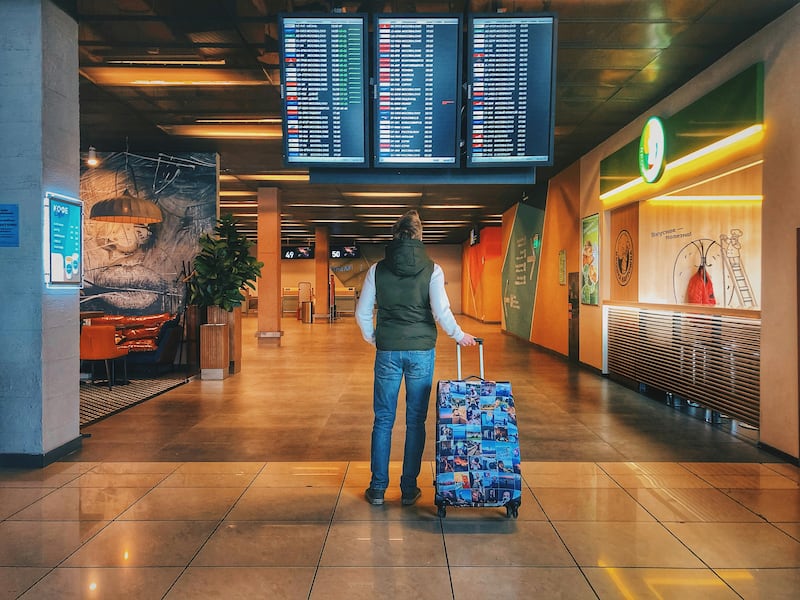
When travelling during Ramadan, things can be a little different for fasting passengers. Photo: Danila Hamsterman / Unsplash

The Muslim holy month is almost upon us. Every Ramadan , Muslims around the world fast from sunrise to sunset.
Waking before dawn to eat suhoor, people then refrain from eating or drinking anything until the sun goes down, when friends and family gather to break the fast together over iftar .
But when catching a flight, things can be a little different.
With changing time zones and the sun setting at a different time than in the country travellers may have departed from, here’s what you may need to know if you're catching a plane this Ramadan.
Do I need to fast when flying?
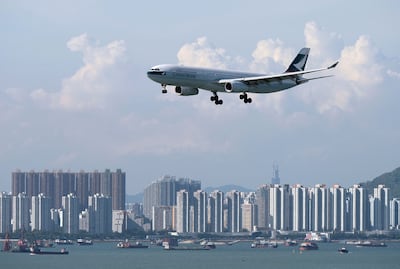
Many people continue to fast when flying and this is sometimes encouraged for shorter flights, but Muslims do not need to fast when travelling.
If the thought of breaking your fast mid-flight concerns you or you are worried about knowing the right times to eat, you can opt not to fast during your journey.
If fasting is not going to be feasible during your travels, Muslims can make up the days missed upon their return, or at any other suitable time in the future.
How do I know when to break my fast when flying?
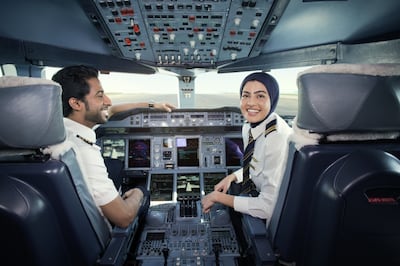
Travellers should follow the rules and times of where they are in the world, rather than those of the country that they departed from. That said, there's no need to stress about when you should break your fast, as on most airlines in the region, the captain or crew will inform passengers when it's time to eat, or to begin fasting again.
Emirates says it uses a tool to calculate the correct timings for imsak and iftar while in-flight, based on the times of sunrise and sunset of the location the flight is passing through, using the aircraft’s longitude, latitude and altitude.
If you are not flying in the GCC or are travelling on an airline that doesn't announce prayer times, you can simply break your fast once you see the sun set outside your window.
Will airlines give me food to break my fast when flying during Ramadan?

Several airlines, especially those in the Gulf or operating to and from Muslim countries, will offer passengers iftar or suhoor meals when flights coincide with these times.
This year, Emirates is serving iftar meals to passengers on flights from March 11. These will be presented in boxes designed with patterns from Emirati Al Sadu weavers. These Bedouin women would typically come together during Ramadan to spin and weave, while exchanging family news, singing and reciting poetry.
Dishes include baba ghanoush, Moroccan chicken and Arabic baklawa. Emirates’s Ramadan boxes will be served in addition to the regular hot meal service.
A smaller iftar box will also be served at select Emirates boarding gates at iftar time, including essentials such as water, laban and dates for travellers to comfortably break their fast.
From Abu Dhabi, Etihad Airways is serving Ramadan dishes that blend traditional Emirati and modern flavours with the likes of lamb bukhari with smoked cardamom yoghurt and chicken machbous pinza. Travellers flying in economy class will be served Arabic mezze, as well as a special Vimto mousse dessert.
Etihad passengers breaking their fast just before or after landing will be given Iftar bags decorated with a traditional Emirati artwork, containing laban, water, and dates, and passengers will also have the chance to donate their air miles during Ramadan.
Other airlines may not provide a regular meal service around iftar or suhoor times, but if you're flying economy class, you can ask the crew to hold your meal until you are able to eat it. In business and first-class cabins, you can typically order food as and when you require it.
If I'm not fasting but I'm flying during Ramadan, can I eat and drink as normal?
Travellers who are not Muslim or opting not to fast can continue to eat and drink as normal during flights, with airlines operating meal services, including serving alcoholic beverages if this is a service the airline typically provides.
On flights to Saudi Arabia during the holy month, some airlines may only serve cold meals.
Where can I pray on a plane during Ramadan?
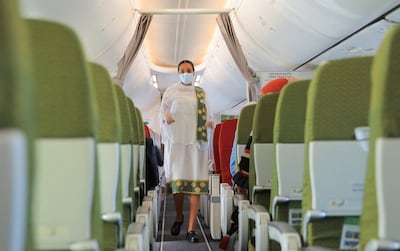
This very much depends on which airline you're travelling with.
If you are flying with Emirates or Etihad, you can use dedicated spaces designed for worship. Curtains can be pulled across so you have some privacy during your prayer; however, be aware that these spaces are limited and other passengers may want to pray too.
If you're flying with an airline that doesn't have an allocated praying space, or if the area is looking crowded with other travellers, you can simply pray in your seat, worshipping from your heart and head.
How do I know which direction to pray in when flying?
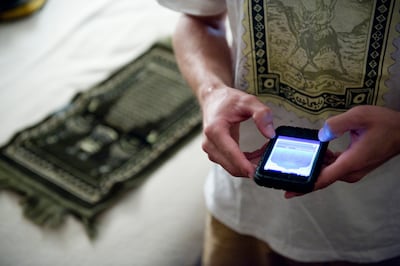
Some airlines have used technology to help make it easier for Muslims to identify which direction to pray in when flying. Real-time qibla finders built into entertainment systems are an effective way to identify the correct direction to face when offering prayers at any point during your flight.
Anything else I need to know?
Some airlines, including Emirates and Etihad Airways, provide Ramadan-themed television programmes, music stations and audio entertainment onboard.
Travellers can also download an app with passages from the Quran loaded onto it before flying, so you'll have something appropriate to read or listen to throughout your flight.
A version of this story first appeared on The National in April 2022
Checking In
Travel updates and inspiration from the past week

- Today's news
- Reviews and deals
- Climate change
- 2024 election
- Fall allergies
- Health news
- Mental health
- Sexual health
- Family health
- So mini ways
- Unapologetically
- Buying guides
Entertainment
- How to Watch
- My watchlist
- Stock market
- Biden economy
- Personal finance
- Stocks: most active
- Stocks: gainers
- Stocks: losers
- Trending tickers
- World indices
- US Treasury bonds
- Top mutual funds
- Highest open interest
- Highest implied volatility
- Currency converter
- Basic materials
- Communication services
- Consumer cyclical
- Consumer defensive
- Financial services
- Industrials
- Real estate
- Mutual funds
- Credit cards
- Credit card rates
- Balance transfer credit cards
- Business credit cards
- Cash back credit cards
- Rewards credit cards
- Travel credit cards
- Checking accounts
- Online checking accounts
- High-yield savings accounts
- Money market accounts
- Personal loans
- Student loans
- Car insurance
- Home buying
- Options pit
- Investment ideas
- Research reports
- Fantasy football
- Pro Pick 'Em
- College Pick 'Em
- Fantasy baseball
- Fantasy hockey
- Fantasy basketball
- Download the app
- Daily fantasy
- Scores and schedules
- GameChannel
- World Baseball Classic
- Premier League
- CONCACAF League
- Champions League
- Motorsports
- Horse racing
- Newsletters
New on Yahoo
- Privacy Dashboard
Muslims worldwide celebrate Eid al-Fitr, but the festivities are marred by the war in Gaza
Aptopix pakistan eid al-fitr.
JAKARTA, Indonesia (AP) — Muslims around the world celebrated the Eid al-Fitr holiday Wednesday, marking the end of the Islamic holy month with family reunions, new clothes and sweet treats.
But the celebrations were overshadowed by the worsening humanitarian crisis in the Gaza Strip and Israel’s expected offensive in the city of Rafah despite efforts from its Western allies to halt the fighting after six months of war.
In Istanbul, thousands of worshippers gathered at the Aya Sofya Mosque for morning Eid prayers, some carrying Palestinian flags and chanting slogans in support of people in Gaza.
Many laid their prayer rugs in the square in front of the former Byzantine cathedral, which was re-converted to a mosque four years ago, as space inside quickly filled.
In a holiday message, Turkish President Recep Tayyip Erdogan sent support to Gaza, which he called a “bleeding wound on the conscience of humanity.”
“I hope that the Eid will lead to peace, tranquillity and wellbeing for our country, our nation, the Islamic world and all humanity,” he added.
The war in Gaza was also the focus of prayers at the Rahma Mosque in the Kenyan capital, Nairobi.
“We should not forget our brothers and sisters in Palestine,” Imam Abdulrahman Musa said. “They have been subjected to unjustified aggression and a lot of violence (as) the world is watching in silence.”
In Indonesia, the world's most populous Muslim nation, nearly three-quarters of the population were traveling for the annual homecoming known locally as “mudik” that is always welcomed with excitement.
“Mudik is not just an annual ritual or tradition for us,” said civil servant Ridho Alfian, who lives in the Jakarta area and was traveling to Lampung province at the southern tip of Sumatra island. “This is a right moment to reconnect, like recharging energy that has been drained almost a year away from home.”
Before the Eid al-Fitr holiday, markets teemed with shoppers buying clothes, shoes, cookies and sweets. People poured out of major cities to return to villages to celebrate the holiday with their loved ones. Flights were overbooked and anxious relatives weighed down with boxes of gifts formed long lines at bus and train stations for the journey.
For Arini Dewi, Eid al-Fitr is a day of victory from economic difficulties during Ramadan. “I'm happy in celebrating Eid holiday despite the surge of food prices,” said the mother of two.
Former Vice President Jusuf Kalla was among Jakarta residents offering prayers at the Al Azhar mosque yard. “Let’s celebrate Eid al-Fitr as a day of victory from many difficulties... of course there are many social problems during fasting month of Ramadan, but we can overcome it with faith and piety,” Kalla said.
On the eve of Eid al-Fitr, Jakarta residents set off firecrackers on streets that were mostly empty after city residents traveled home.
On Wednesday morning, Muslims joined communal prayers shoulder-to-shoulder on the streets and inside mosques. Jakarta’s Istiqlal Grand Mosque, the largest in Southeast Asia, was flooded with devotees offering morning prayers.
Preachers in their sermons called on people to pray for Muslims in Gaza who were suffering after six months of war.
“This is the time for Muslims and non-Muslims to show humanitarian solidarity, because the conflict in Gaza is not a religious war, but a humanitarian problem," said Jimly Asshiddiqie, who chairs the advisory board of the Indonesian Mosque Council.
In Pakistan , authorities deployed more than 100,000 police and paramilitary forces to maintain security at mosques and marketplaces. People were shopping as usual Tuesday, with women buying bangles, jewelry and clothes for themselves and their children.
In Malaysia, ethnic Malay Muslims performed morning prayers at mosques nationwide just weeks after socks printed with the word “Allah” at a convenience store chain sparked a furor. Many found it offensive to associate the word with feet or for it to be used inappropriately.
Malaysia’s Prime Minister Anwar Ibrahim called for unity and reconciliation in his message on the eve of Eid, saying no groups should be sidelined based on religion or any other reason.
“We must be firm, resolute and unwavering in our commitment to foster values and build a dignified nation,” he said. “However, let us not take this as a license or opportunity to insult, undermine, or damage the cultural practices and way of life of others.”
The owners of the KK Mart chain and representatives from one of its suppliers were charged with offending the religious feelings of Muslims. KK Mart Group said the supplier sent items the company had not agreed to stock. The supply company founder apologized for being careless in the inspection of the imported items.
Associated Press journalists Andi Jatmiko and Dita Alangkara in Jakarta, Eileen Ng in Kuala Lumpur, Malaysia, Andrew Wilks in Istanbul and Idi Ali Juma in Nairobi, Kenya, contributed to this report.
Recommended Stories
2025 porsche taycan gt first drive review: 'holy hell'.
The new Taycan GT is the closest thing to an electric GT3 you'll find. The Weissach package version is even nuttier.
Grab a Cuisinart knife set for $13 (nearly 70% off!) — plus other sweet price cuts we found today
Also on our cheat sheet: Spring savings for your home, garden, body and beyond from Target, Macy's, Walmart and Amazon.
Cruise's robotaxis return to Arizona roads
Cruise will start re-deploying its autonomous vehicles in Phoenix, Arizona after a major upheaval last year that led to a pause in its operations. However, the robotaxis will have human drivers behind the wheel.
Sierra Space eyes IPO market as it braces for a 'profound industrial revolution' in space
Sierra Space, one of the space industry’s most valuable private companies, plans to go public within the next 18 months, according to its CEO.
Guesty snaps up $130M at $900M valuation to help property managers list on Airbnb and beyond
Travel and tourism are very much back on the map for consumers and the business world. Now, to underscore that surge, one of the startups building software in the space has closed a big round of funding. Guesty, a platform that lets accommodation managers manage their business on platforms like Airbnb and Vrbo, and directly to travellers, has raised $130 million.
Delta beats Q1 earnings expectations, CEO sees 'quite healthy' travel demand this spring and summer
Delta Air Lines’ first quarter results flew over expectations as travel remained resilient, driven by a steady resurgence in corporate travel.
Mortgage rates today, April 10, 2024: Don’t hold out for lower rates
These are today’s mortgage rates. Rates likely won’t drop drastically in the next few months, but it could still be a good time to buy. Lock in your rate today.
Inflation expected to remain elevated as rate cut debate takes center stage
March's CPI report is one of the most important data points the Federal Reserve will consider in its next interest rate decision.
Yoshi Mobility has come a long way since gassing up cars on the side of the road
Almost 10 years ago, Bryan Frist, Nick Alexander and Daniel Hunter had an idea to inject some technology into the automotive industry. Using the initial entry point of gas, they started the Yoshi Mobility app to deliver gas to San Francisco-area consumers on their day of choice for $20 per month. “The automotive industry was one that was kind of untouched by innovation,” Frist told TechCrunch.
2024 Fiat 500e First Drive Review: Reborn EV packs style, plays music out its bumper
The reborn Fiat 500e is greatly improved over its predecessor and is an appealing choice for those with modest EV expectations.
From World Cup heartbreak to SheBelieves Cup hero, Alyssa Naeher wins another penalty shootout for USWNT
After a 2-2 draw in regulation, the USWNT beat Canada on penalties for the SheBelieves Cup title.
2023-24 NBA year-end awards anxiety with Ben Golliver from the Washington Post | Devine Intervention
Dan Devine and Ben Golliver talk their way through some of the NBA’s year-end awards and explain why they have anxiety about voting.
Cambium is building a recycled wood supply chain
The global demand for wood could grow by 54% between 2010 and 2050, according to a study by the World Resources Institute. While some building materials like steel get consistently recycled back into the supply chain, wood does not. Cambium hopes to fix that.
Morgan Wallen's ex KT Smith speaks out after his arrest, hopes he returns 'to the good path that he was on'
Country star Morgan Wallen was arrested and charged with felony reckless endangerment and disorderly conduct for tossing a chair off a rooftop bar.
Timberwolves star Karl-Anthony Towns cleared to return from torn meniscus ahead of playoffs
The Timberwolves, who hold a slight lead for first in the Western Conference standings, haven’t won a playoff series since 2004.
Only Amazon Prime members can score these 9 secret sales — they start at just $8
Hidden bargains include $250 off a Eufy robovac, and there's plenty more where that came from.
These are the best invisible hearing aids of 2024, according to experts
They're tiny but mighty — and come in a range of types.
Champions League quarterfinals will go on despite alleged terror threat
UEFA is 'aware' of the situation and says 'appropriate security arrangements' are in place.
Mother Nature is giving everyone something to talk about
An eclipse, an earthquake and unpredictable spring weather launched people into a tailspin. They’re all great fodder for benign conversation.
Trump legal news brief: Trump motion to delay hush money trial rejected by second appeals court judge in two days
For the second time in two days, an appeals court judge rejects a motion by former President Donald Trump that would have delayed the April 15 start of his hush money trial.
- Albalagh.net
- AnswersToFatawa
- Arij Canada
- Askimam.org
- Askmufti.co.za
- AskOurImam.com
- CouncilofUlama.co.za
- Darulfiqh.com
- Darulifta Azaadville
- Darulifta Deoband Waqf
- Darulifta-Deoband.com
- Daruliftaa.com
- DaruliftaaMW.com
- DaruliftaaZambia.com
- DarulIftaBirmingham
- Darulihsan.com
- DarulUloomTT.net
- Fatwa-TT.com
- Fatwa.org.au
- FatwaCentre.org
- HadithAnswers.com
- IslamicPortal.co.uk
- IslamicSolutions.org
- Jamia Binoria
- Mahmoodiyah
- Mathabah.org
- Muftionline.co.za
- Muftisays.com
- MuslimaCoaching.com
- Seekersguidance.org
- ShariahBoard.org
- Tafseer Raheemi
- TheMufti.com
- ZamzamAcademy.com
- BinBayyah.net
- Darul Iftaa Jordan
- Shafiifiqh.com
- HanbaliDisciples.com
- TheHanbaliMadhhab.com
- Ask Question
- Lailatul Qadr

Home » Hanafi Fiqh » Mathabah.org » Shortening and Combining Prayers During Travel and Pilgrimage
Related Q&A
- Re: May I shorten my prayer when traveling within the city?
- What Are the Methods for Combining (Jam') and Shortening (Qasr) Prayer for Travel? [Shafi'i School]
- Shortened and or Combined Ritual Prayer During Travel
- Shortening the prayers when one doesn't know the destination
- When Is a Person Considered a Traveler Who Can Shorten Their Prayers?
- Travel that Allows Missing Jumu`ah
Shortening and Combining Prayers During Travel and Pilgrimage
Answered by shaykh yūsuf badāt.
How do we perform ṣal āh (ritual prayers) during Ḥajj and ʿUmrah, shortened and combined or complete?
In the sacred journey, pilgrims are usually at the blessed lands for a short period of time. This usually entails the rules of prayer during travel.
Shortening Ritual Prayers
During travel one is to shorten the four unit far ḍ (mandatory) prayers to two. Shortening the prayers in this manner is w ājib (necessary) according to the Ḥanaf ī school and sunnah mu ʾakkadah (an emphasised prophetic practice) according to other schools or jurisprudence.
“And when you travel throughout the land, there is no blame upon you for shortening the prayer.” (Qurʾān 4:101) Ibn ʿOmar ( may All āh be pleased with him ) said, “I accompanied the Prophet ( peace and blessings upon him ) in travel, he never exceeded two units of prayer. Abū Bakr, ʿOmar and ʿOthmān ( may All āh be pleased with them ) also did the same.” (Bukhārī, Muslim)
There is an opinion in the Sh āf ʿīe and Ḥanbal ī schools that the traveler may opt to offer the complete four, despite being in journey. Although this is not preferred. (See: Kitāb Fiqh ʿAlā Al-Madhāhib Al-Arbaʿah, Iʿilā Al-Sunan)
Conditions to Shorten Ritual Prayers
The conditions for one to shorten prayers due to travel are as follows:
One must intend and also travel a distance of at least 77 km going to the destination away from home.
One must stay at the destination for less than 15 days (4 days according to Shāfʿīe , M ālik ī and Ḥanbalī schools). Otherwise, shortening would not be permitted.
The Shāfʿīe and Ḥanbalī schools stipulate that shortening of prayers are only applicable if the journey is for a positive purpose and not a journey to commit sin or evil. The Ḥanaf ī and M ālik ī schools state that the traveler will shorten prayers regardless of the purpose and or objective of the journey. (See: Kitāb Fiqh ʿAlā Al-Madhāhib Al-Arbaʿah)
Joining Prayers
During travel, apart from shortening, one may also combine two prayers, meaning Dhuhr and ʿAṣr and or joining Maghrib and ʿEshā together. Combining can take place in two forms. Taqd īm/ Haq īqatan and or Ta ʾkh īr/ Ṣuratan .
Taqd īm/ Haqīqatan refers to performing two prayers in one ṣal āh timing. For example, Dhuhr and ʿAṣr are offered in Dhuhr time. Ta ʾkh īr/ Ṣuratan refers to offering the first prayer delayed to its final moments and then praying the next prayer in its beginning time. Scholars of the Shāfʿīe , M ālik ī and Ḥanbalī schools are of the view that both forms of combining are permitted during travel.
Imams Ibn Sirīn, Ḥasan, Nakhaʿī and Abū Ḥanīfah ( may All āh’s mercy be with them ) state that combining two prayers during one ṣal āh timing is only permitted in ʿArafah and Muzdalifah. As for travel, one is to combine using the Jam ʾ Ta ʾkh īr/ Ṣuratan method. (See: Al-Muḥīṭ Al-Burhānī, Al-Mughnī, Iʿilā Al-Sunan)
“The Prophet ( peace and blessings upon him ) would offer prayers at their fixed timing except in Muzdalifah and ʿArafah.” (Nasaʾī, Āthār Al-Sunan) “In travel, the Prophet ( peace and blessings upon him ) would perform Dhuhr delayed and ʿAṣr early, [he would also] delay Maghrib and expedite ʿEshā.” (Ṭaḥāwī)
Praying Behind the Local Resident Imam
Shortening and or combining prayers during travel will take place when performing ritual mandatory prayers individually or together with a congregation of travellers. However, when one is offering prayers in congregation behind a local resident imam, one will perform full prayers with the imam. (Iʿilā Al-Sunan)
“Mūsā bin Salamah ( may All āh be pleased with him ) says, “We were with Ibn ʿAbbās (a resident) in Makkah. I said, “When we are with you in prayer, we offer the four [with you]. When we are praying individually we pray two.” IbnʿAbbās said, “That is the sunnah (prophetic way).”” (Al-Talkhīṣ Al-Ḥabīr, Musnad Aḥmad)
Optional Sunnah and Nafl Prayers During Travel
One should note that there is no shortening in sunnah and nafl (optional) units of prayer. During travel, if one has time, one may perform the optional sunnah and nafl prayers.
It is reported the Prophet ( peace and blessings upon him ) performed optional prayers during travel before Fajr and Dhuhr, as well as after Maghrib. (See: Bukhārī, Trimidhī)
Prayers on a Flight
Every effort should be made to plan prayer where one fulfills all requirements of the ṣal āh , including facing the qiblah and standing. If one is scheduled on such a flight where a prayer or more cannot be offered on time before departing nor after landing, due to the entire prayer timing being on flight, then one should pray on board. One must find a suitable place on the flight where one can stand and face the qibla. If for some reason, there is no possibility what so ever to stand and pray fulfilling the requirements of ritual prayer, one may pray on their seat gesturing the ruk ūʾ (bowing) and suj ūd (prostration). This would be the method of praying in such a circumstance, even if the direction is not towards qibla. This is due to the necessity, otherwise this is not permitted in general circumstances for mandatory [ far ḍh ] ritual prayers.
“Be dutiful to the Almighty as much as possible.” (Qurʿān: 64:16) “When I instruct you to any ritual act, execute it to the best of your ability.” (Ṣaḥīḥ Muslim) “Perform prayer standing, if you are unable, then sitting, if you are unable then on your side.” (Bukhārī, Nasaʾī) Ibn ʿOmar ( may All āh be pleased with him ) said, “The Prophet ( peace and blessings upon him ) was asked about ritual prayer on a ship. He replied, “Perform prayer on it, in a standing position as long as you do not fear collapsing [and drowning].” (Mustadrak, Jāmiʾ Al-Saghīr) Yaʾlā bin Murrah ( may All āh’s mercy be with him ) reports from his grandfather who was on a journey once with the Prophet ( peace and blessings upon him ). The time for mandatory prayer was near to expiry during a heavy storm that caused floods and excessive wetness. Everyone performed the prayers with the Prophet ( peace and blessings upon him ) by the means of gestures making the prostration more declined than the bowing. Everyone remained on their conveyances. (See: Tirmidhī)
And Allāh Knows Best
This answer was collected from Mathabah.org. It’s an Islamic educational institute based in Canada. The questions are generally answered by Sheikh Yusuf Badat and Sheikh Omar Subedar.
Read answers with similar topics:
Random Q&A
Is not voting in the elections sinful, infertility treatment, a middleman in a property transaction., if a muslim does’nt pray 5 times a day does he/ she become kaffir does the nikkah break, duas before intercourse and for conceiving, can one make tayammum on the masjid walls, more answers….
- Is the Sunnah Greeting with One or Two Hands?
- Gifting Rewards of Deeds to Someone Alive or Deceased and Visiting the Cemetery
- Wordings of the Witr Qunūt Supplication
- Forgiveness After an Abortion Ordeal
- Spouses Looking at Each Other’s Private Parts
- Does Excessive Satanic Whispers Nullify Ritual Prayer?
Latest Q&A
- Is Makeup Allowed During Iḥrām?
- Do These Actions Formulate Disbelief?
- The Status of a Job Acquired with False Certification
- Can a Ḥanafī Resident Pray Behind a Shāfi’īe Traveller?
- Is it Permissible to Allow Wheelchairs in a Masjid?
- Is an Entry Fee at a Charity Event Considered Charity?
Indexed Websites
Privacy overview.
- Discover Islam
- Quran Recitations

- Medical Issues, Media, Culture and Means of Entertainment
- Culture and Thought
The Islamic position on 'time travel'

What does the Islam say about time-travel?
All perfect praise be to Allaah, The Lord of the Worlds. I testify that there is none worthy of worship except Allaah, and that Muhammad, sallallaahu ‘alayhi wa sallam, is His Slave and Messenger. If you mean by "time travel" moving between different points in time forward or backward, meaning physically visiting the past or the future, then this is impossible. Allaah, The Exalted, says (what means): • { And if I knew the unseen, I could have acquired much wealth, and no harm would have touched me. } [Quran 7:188] • { And no soul perceives what it will earn tomorrow, and no soul perceives in what land it will die. Indeed, Allaah is Knowing and Acquainted. } [Quran 31:34] Only Allaah, The Exalted, knows the Unseen; if it were possible to travel to the future and know what would happen, this (the fact that only Allaah knows the Unseen) would be falsified. Allaah, The Exalted, says (what means): { And with Him are the keys of the unseen; none knows them except Him. } [Quran 6:59] And He says (what means): { Say, "None in the heavens and earth knows the unseen except Allaah. } [Quran 27:65] We would like to point out that "time" is nothing more than a mathematical function of two variables; it cannot be separated or abstracted so that it would be possible to travel through it. However, certain "periods of time" can be (relatively) longer or shorter compared to others. For instance, the time the Dajjaal will spend on earth was described by the Prophet, sallallaahu ‘alayhi wa sallam, as follows: " forty days: one like a year, one like a month, one like a week, and the rest of his days like yours. " [Muslim] Another example is in the Hadeeth about Yoosha‘ ibn Noon ( Joshua the son of Nun ) conquering Jerusalem: " He reached that town at the time of the ‘Asr prayer, so he said to the sun, 'O sun! You are bound by the command (of Allaah) and so am I! O Allaah, stop it (i.e. the sun) from setting for a while.' It was stopped until Allaah made him victorious. " [Al-Bukhari and Muslim] However, if you mean merely imagining that one is living in the past and envisioning people's lives then or imagining the future and envisioning the potential scientific and intellectual advancement, then there is nothing wrong with that. Many of the matters that were fantasies in the past have become realities. Allaah Knows best.
Related Fatwa

Wants to write the description of his ideal wife-to-be
Black color is not condition in clothes of muslim women, search fatwa.
You can search for fatwa through many choices
Fatwa Subject
- The Noble Quran
- Noble Hadeeth
- Islamic Creed
- Religions, Sects and Da'wah (Call to Islam)
- Seerah (Biography of the Prophet)
- Merits and Virtues
- Etiquettes, Morals, Thikr and Du'aa'
- Tahaarah (Ritual Purity)
- Salah (Prayer)
- Funeral: Prayer and Rulings
- Zakaah (Obligatory Charity)
- Siyaam (Fasting)
- Hajj and 'Umrah
- Fiqh of Transactions and Inheritance
- Women and Family
- Foods, Drinks, Clothes and Adornment
- Jinaayaat (Criminology) and Islamic Judicial System
- Islamic Politics and International Affairs
- Miscellaneous
- OTHER ISSUES

- Islamic Songs
Special Folders
- Hajj & Umrah
- Xmas & New Year's
- Sacred Months
- Inheritance
- Prayer Times
- Calendar Converter

Copyright © IslamWeb 2024. All rights reserved.


IMAGES
VIDEO
COMMENTS
Islam doesn't want us to stay blind to the ways and cultures of others. In fact, quite the opposite. Allah commands us to travel: "Say, [O Muhammad], 'Travel through the land and observe how He began creation. Then Allah will produce the final creation. Indeed, Allah, over all things, is competent.'" (Al-`Ankabut 29:20)
Answer: Assalamu 'Alaykum, I pray that you are well. In brief, a person is considered a traveler and can shorten and combine their prayers when they: -Are not traveling for a purpose that is impermissible. -Are performing prayers that occur within the travel period. -Have passed one's city's limits, and will be traveling from there for a ...
Islam introduced some ease and permissions for travelers: * A person who travels in the month of Ramadan can delay fasting. * The time limit for wiping over khuffs worn on feet is three days and nights for a traveler. * The most important ease and permission is shortening prayers. A traveler performs 4-rak'ah prayers as two rak'ahs.
New Age Islam brings modern Muslims closer to the original ideals and spirit of Islam & Rethink on Islam. Visit us today! The rights of the travellers were stressed by the Quran because during the time the Quran was revealed, travelling was not a luxury like it is today. The rich used horses or camels as a means of transportation but the common ...
Answer: Assalamu 'Alaykum, I pray that you are well. In brief, a person is considered a traveler and can shorten and combine their prayers when they: -Have done three things to allow for combining prayers in the time of the first prayer: prayed in order; intended to combine prayers at some point during the first prayer; prayed the second ...
1. A person will remain a musafir and will continue offering two rak`ah s for the four- raka`at Salahs until he makes the definite intention of staying at a place for fifteen days or more. 2. The place where he makes this intention is known as his Watan al-Iqamah. He must offer four raka`at Salah here.
5. Bid Your Family Members Farewell. Death is inevitable, so Islamic teachings are preparing Muslims for the worst-case scenario. One of the proper etiquettes, before we set to travel, is bidding our family members farewell for we do not know what the future holds.
Ustadh Tabraze Azam writes on the proprieties of travel and how one can make even a simple journey an act of true worship. True, meaningful journeying is found in spiritual wayfaring. In other words, the journey from sin and disobedience to righteous acts and godfearingness, from heedlessness to presence, from distance to proximity, and from ...
When one is a traveler, it is mandatory (wajib) to shorten the obligatory four-rakat prayers (zuhr, 'asr and 'isha) to two rakats. One still prays the sunna prayers though, unless in the midst of a journey and in the rush of travel. If one is a traveler during the month of Ramadan, then fasting is optional, although it is superior to do so ...
Muslim Travellers: Pilgrimage, Migration, and the Religious Imagination. Muslim Travellers. : Dale F. Eickelman, James P. Piscatori. University of California Press, Oct 8, 1990 - Religion - 281 pages. Focusing on travel in Muslim societies from Malaysia to West Africa to Western Europe from the first centuries of Islam to the present, the ...
1. Proof for the minimum distance to be considered a traveller in the. Hanafi School. The Musafir or traveller is the Muslim who goes out of his country. aiming to reach another country lying at a distance of 88 kilometers or. more. The proof for this is derived from the hadiths which correlate three.
With night effectively turning to day, if you do intend to travel to a Muslim-majority place during Ramadan, do what the locals do. Sleep in the early part of the day and stay up late into the ...
Benefits and rulings: First: Islam is tolerant and the Sharee'ah (Islamic legislation) is easy and gives due consideration to the varied conditions of Muslims who are capable of performing their religious duties. So, all perfect praise is due to Allah. Second: The traveler may either fast or break the fast, and to comply with the Sunnah ...
Juhie Bhatia. Jan 21, 2022 • 6 min read. Elena Nikolova (pictured) has spent years building a resource for Muslim travelers who are looking for relevant information and good deals. Elena Nikolova converted to Islam in 2009. Four years later, she channeled her wanderlust into a new endeavor: helping other Muslims travel the world.
Al-Biruni, in the 11th century, wrote in his book the Demarcation of the Limits of the Areas that Islam has already penetrated from the Eastern countries of the earth to the Western.. It spread westward to Spain [Al-Andalus], eastward to the borderland of China and to the middle of India, southward to Abyssinia and the countries of Zanj Zanj [meaning black Africa from Mali to Kilwa (Tanzania ...
As to what is better, that depends: 1- If fasting and not fasting are the same, in the sense that fasting does not affect him, then in this case fasting is better, because of the following evidence: Fasting while traveling means that one fulfills one's duty more quickly, because making it up later means delaying it, but fasting in Ramadan means ...
Islam and Travel in the Middle Ages assesses both the religious and philosophical aspects of travel, as well as the economic and cultural conditions that made the rihla possible. Houari Touati tracks the compilers of the hadith who culled oral traditions linked to the prophet, the linguists and lexicologists who journeyed to the desert to learn ...
Answer. In the name of Allah, the Inspirer of truth. The minimum distance of journey for a person to be deemed a traveller is 48 miles. When a person leaves their home city with an intention to travel this distance or further, they will be a considered a legal traveller, and thus it will be mandatory wajib for them to shorten their fard (obligatory) prayers as a concession.
1. Is it permissible to combine prayers during vacation/leisure travel? 2. Travel is limited to 4 days. But what if you are on the move for more than 4 days, e.g., on a hike, and it will take you 6 days to reach the destination. When does the 4 days end? Can we still combine prayers after the four days have expired? Answer: Wa alaykum al-Salam.
Travellers flying in economy class will be served Arabic mezze, as well as a special Vimto mousse dessert. Etihad passengers breaking their fast just before or after landing will be given Iftar bags decorated with a traditional Emirati artwork, containing laban, water, and dates, and passengers will also have the chance to donate their air ...
Islamic jurisprudence( fiqh) A misyar marriage ( Arabic: نکاح المسيار, romanized : nikāḥ al-misyār or Arabic: زواج المسيار, romanized : zawāj al-misyār) is a type of marriage contract allowed by some Sunni Muslims. The husband and wife thus joined are able to renounce some marital rights such as living together, the ...
Per Islamic tradition, the Prophet Muhammad's young son Ibrahim died on the day of a solar eclipse, and many of his followers at the time associated the celestial phenomenon with death and ...
Muslims around the world celebrated the Eid al-Fitr holiday Wednesday, marking the end of the Islamic holy month with family reunions, new clothes and sweet treats. Many laid their prayer rugs in ...
During travel, apart from shortening, one may also combine two prayers, meaning Dhuhr and ʿAṣr and or joining Maghrib and ʿEshā together. Combining can take place in two forms. Taqdīm/ Haqīqatan and or Taʾkhīr/ Ṣuratan. Taqdīm/ Haqīqatan refers to performing two prayers in one ṣalāh timing. For example, Dhuhr and ʿAṣr are ...
Answer. All perfect praise be to Allaah, The Lord of the Worlds. I testify that there is none worthy of worship except Allaah, and that Muhammad, sallallaahu 'alayhi wa sallam, is His Slave and Messenger. If you mean by "time travel" moving between different points in time forward or backward, meaning physically visiting the past or the ...